 Wayne Stacy Executive Director, BCLT
Wayne Stacy Executive Director, BCLT

Table of Contents:
BCLT By The Numbers 3
Introducing BCLT 4 Community 6 BCLT Faculty 8 Lecturers 12
BCLT Faculty Scholarship 14 Tech Curriculum 20
New Fellow Spotlights 18 Asia IP & Technology Law Project 22 Life Sciences Project 23 Students 24 BCLT Technology Pillars 28 IP and Antitrust 30
Privacy, Cybersecurity and Content Regulation 34 Technology, Disruption, and Social Impact 38 Data Science and Information Technology 42
Entertainment and New Media 46 Life Sciences and Health Technology 50 Sponsorship 54
Cities, states, and countries are all aggressively moving to steer the course of technology development through laws and regulations. As many companies have discovered the hard way, long-term success requires more than just a great new product. It requires both a thorough understanding of existing regulations and an understanding of where public policy could take those regulations in the future. Adding to those demands, companies must also navigate many different areas of the law—from privacy to patent to competition law to the social impact of technology.
BCLT is the only legal center in the world that pulls all of these legal areas together into a single academic center. We are supported by 18 full-time faculty, each focused on the future of tech and IP law. Our students also benefit from having more than 40 of the nation’s top legal practitioners as lecturers. They are often the first to see the new legal issues developing in tech and IP. They bring those issues directly to our students in the 50+ tech and IP classes offered at Berkeley Law. This incredible combination of
thought leaders enables impactful research and develops well-rounded, thoughtful law students.
The impact of BCLT’s work can be seen in our industry-leading symposiums and conferences. We provide thousands of hours of advanced training every year to practitioners worldwide. Our goal, as a public university, is to share this training with everyone regardless of ability to pay. Our sponsors deserve recognition and credit for making this possible because BCLT receives no tax or tuition dollars. Our sponsors have generously chosen to support the entire tech-focused legal community and make BCLT’s advanced training material available to all. We look forward to continuing to support the entire legal community and thank our sponsors for making it all possible.
Best wishes,
BCLT Executive Staff—
Wayne Stacy Jann Dudley
2 | Annual Bulletin 2022-2023

Introducing B-CLE Supporting the Entire Community
Laws and regulations are critical to today’s tech and IP landscape. Unfortunately, some of the best, advanced training material is locked behind paywalls and available only to those with big legal budgets. In-house counsel, mid-size firms, and solo practitioners need advanced legal material to help them navigate today’s ever-changing issues. And of course, we all need CLE credit.
To support the entire legal community, BCLT developed a proprietary training and CLE platform open to the entire legal community: B-CLE. With the generous support of our sponsors, we can provide this advanced content and CLE credit at no charge.
We launched B-CLE with over 100 programs in all areas of tech and IP, and we are adding new content weekly. Visit the B-CLE platform at bcle.berkeley.edu.


4 | Annual Bulletin 2022-2023
CATALOG
Catalog
10 Things to Know Before You Go to Trial in Waco

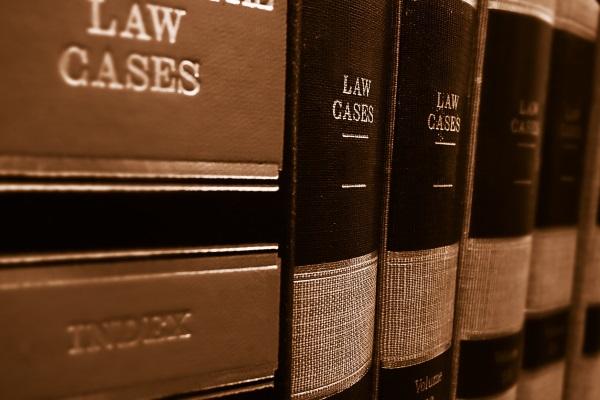

Author/Instructor: BCLT 30 Min. 1/1/24 Avail. to
10th Annual BCLT Privacy Law Forum - CCPA and CPPA: California and Colorado









Author/Instructor: BCLT
10th Annual BCLT Privacy Law Forum - Cybersecurity Law Developments
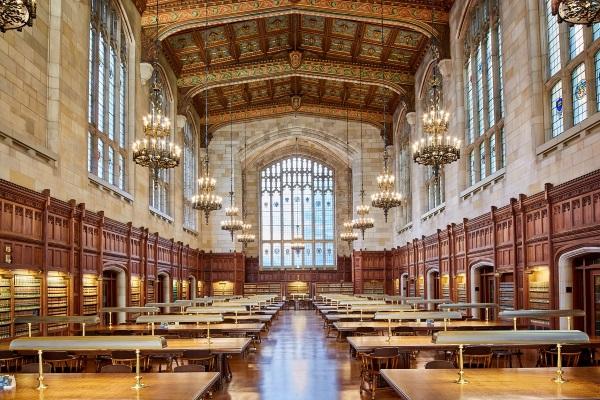
Author/Instructor: BCLT
Description: Despite all of the recent press, the Western District of Texas is a relatively recent entrant into the world of high-volume patent litigation. And through all that press, it is easy to forget that Judge Albright and Waco are seeing their first series of patent trials. Don't be fooled--you Eastern District experience does not matter. What do trial attorneys need to know? And what should in-house counsel be asking about as trial approaches? And maybe the most important question of all, what should in-house counsel be thinking about earlier in their cases in order to get ready for trial if it does occur. For anyone overseeing a patent litigation in the Western District, this is a session that will help you ask
DETAILS
45 Min. 1/1/24 Avail. to
DETAILS
The Annual BCLT Privacy Law Forum has become the most important privacy conference in the country! Over 650 privacy law specialists registered for this year’s forum. Bridging academia and practice, this conference brings together in-house counsel from leading tech companies, practicing lawyers, regulators, privacy advocates, and academics. Faculty from the UC Berkeley School of Law will share their latest research and analysis, and leading privacy experts from law firms, companies, and government agencies will offer fresh insight and practical advice on meeting urgent privacy challenges.
Speakers Jennifer Urban, CPPA Chair, Berkeley Law, BCLTChris Hoofnagle, Berkeley Law, BCLT
45 Min. 1/1/24 Avail. to
DETAILS
The Annual BCLT Privacy Law Forum has become the most important privacy conference in the country! Over 650 privacy law specialists registered for this year’s forum. Bridging academia and practice, this conference brings together in-house counsel from leading tech companies, practicing lawyers, regulators, privacy advocates, and academics. Faculty from the UC Berkeley School of Law will share their latest research and analysis, and leading privacy experts from law firms, companies, and government agencies will offer fresh insight and practical advice on meeting urgent privacy challenges.
Speakers Jim Dempsey, Berkeley Law Janine Slade, CovingtonMichelle Visser, Orrick
Annual Bulletin 2022-2023 | 5 !CATALOG "PRACTICE AREAS "MY ACCOUNT
Search
# $- All Practice Areas - % Title (A-Z) %
10th Annual BCLT Privacy Law Forum - International Data Transfers - the Splintering of
10th Annual BCLT Privacy Law Forum - Keynote, Phil Weiser
10th Annual BCLT Privacy Law Forum - Practitioner Panel
Community
Coming out of the pandemic, rebuilding the community is critical. Students and practitioners alike have been isolated from each other for too long. To help with this rebuilding, BCLT is focusing on three initiatives this year:

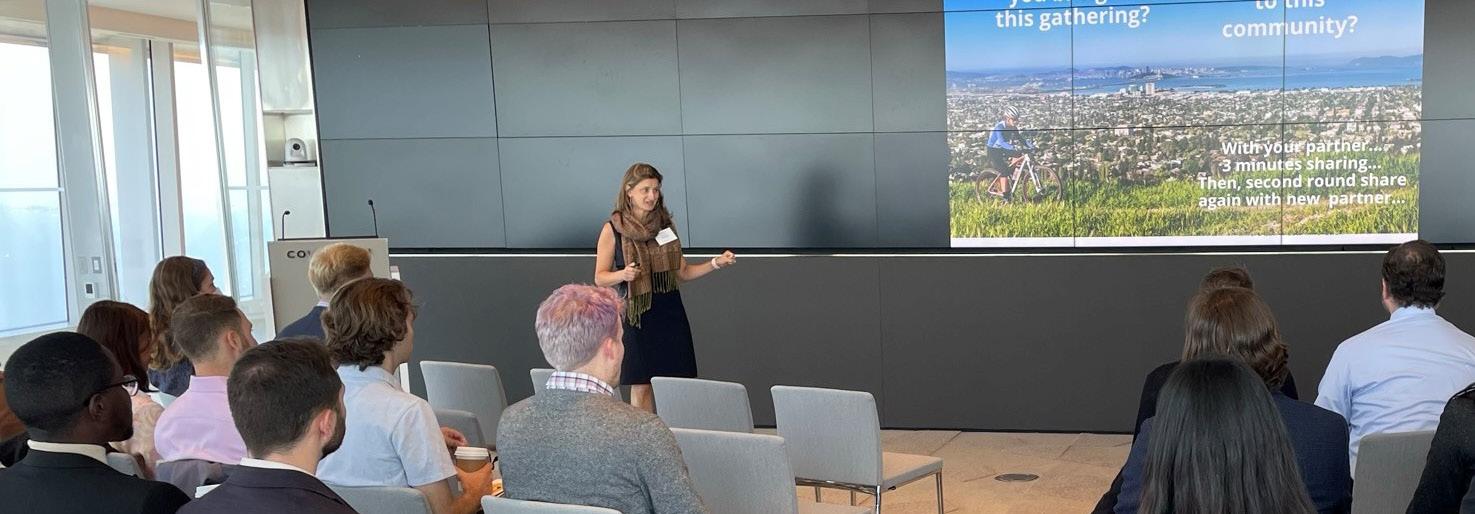

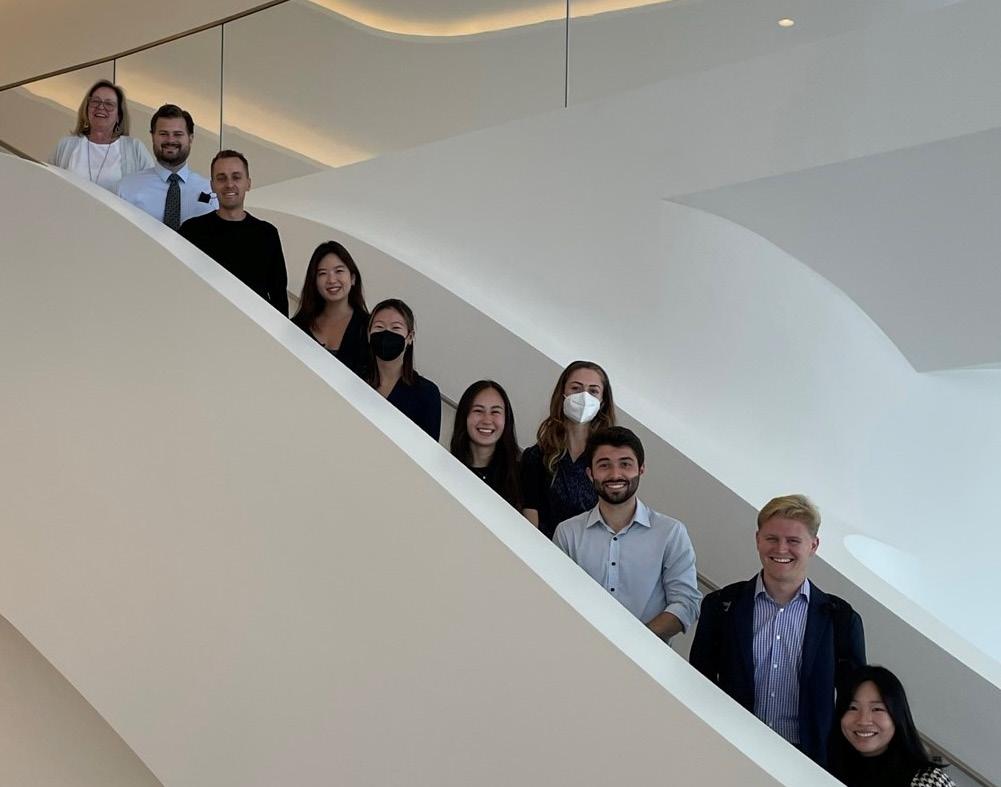
• bringing students together
• bringing students and practitioners together
• bringing practitioners and academics together
The year is off to a great start.
6 | Annual Bulletin 2022-2023
Student Leadership Academy September 16, 2022
Student and Practitioner Events
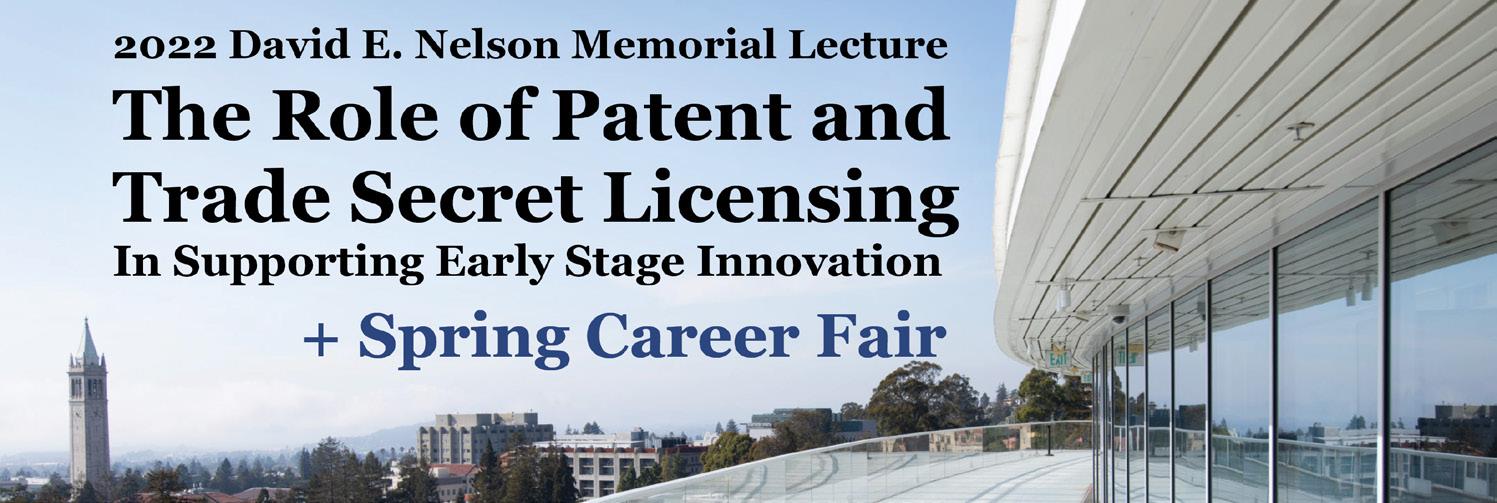

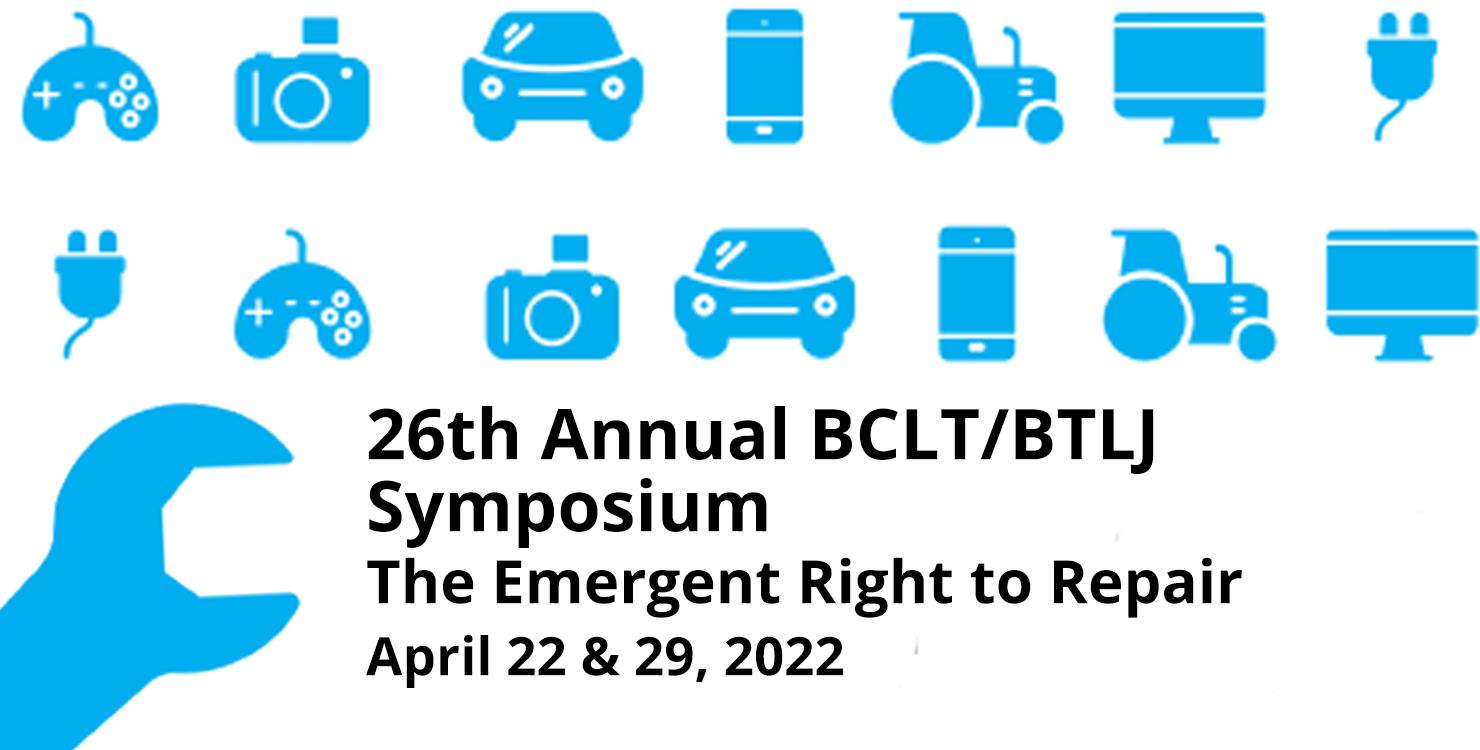
Practitioner and Academic Events
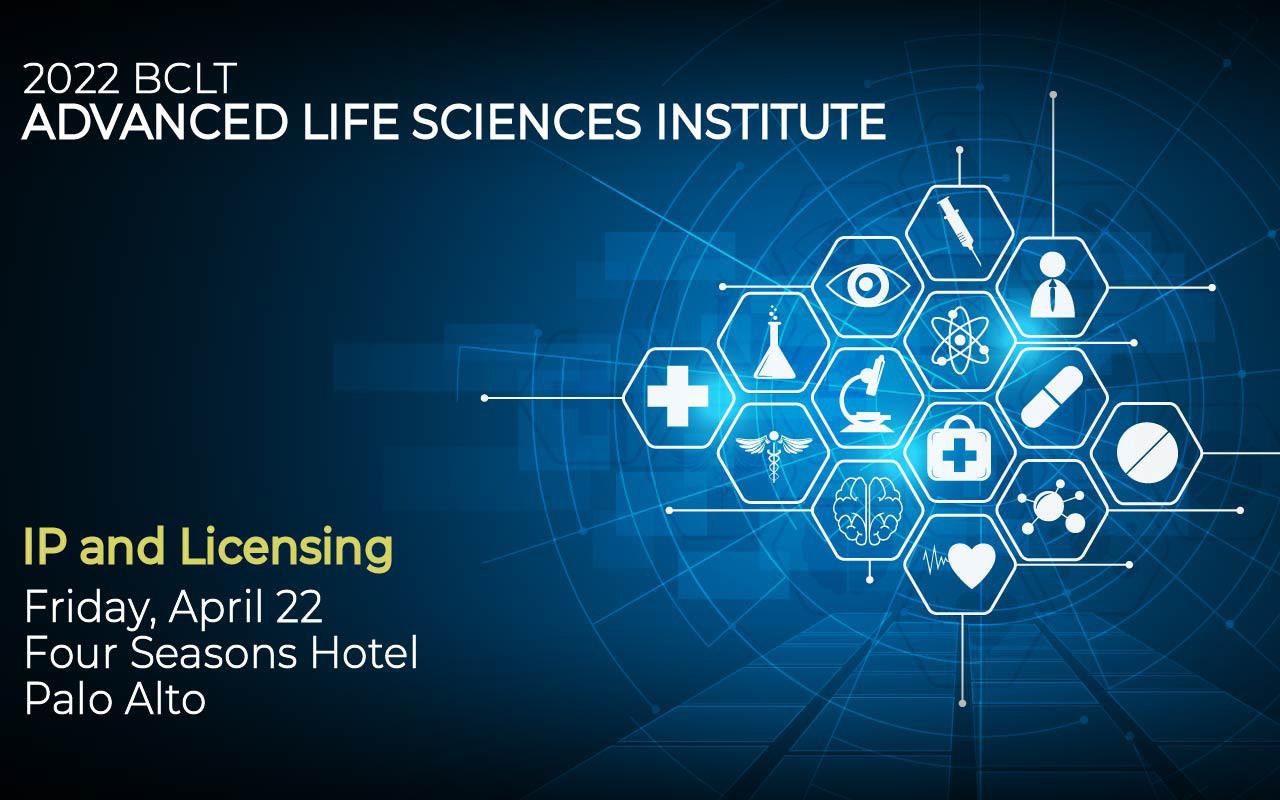
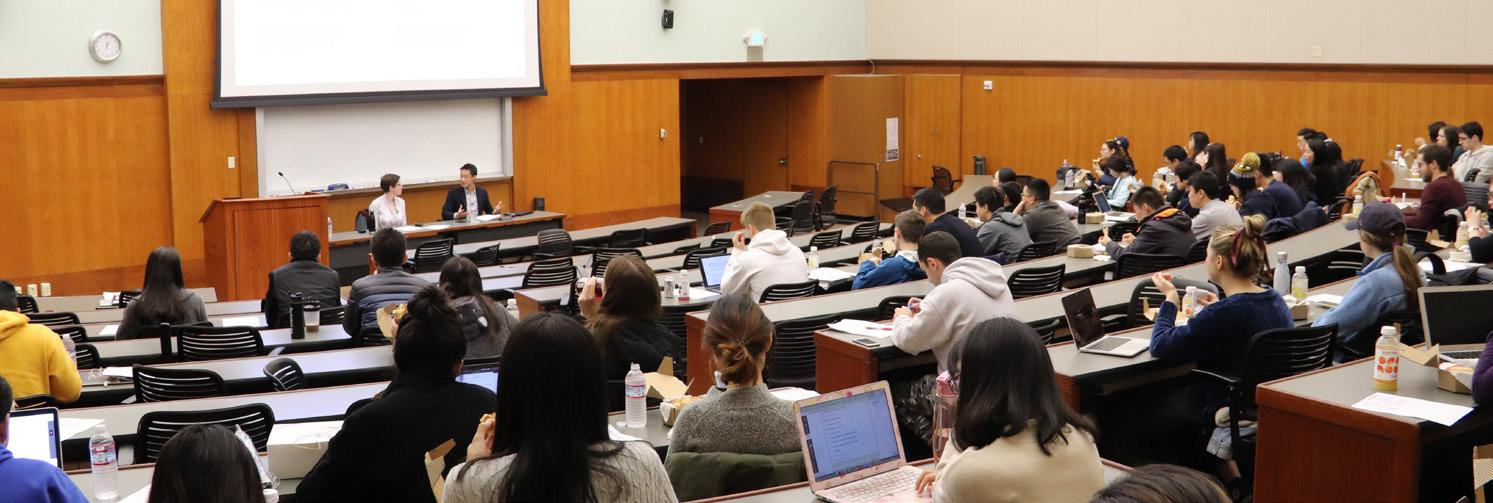
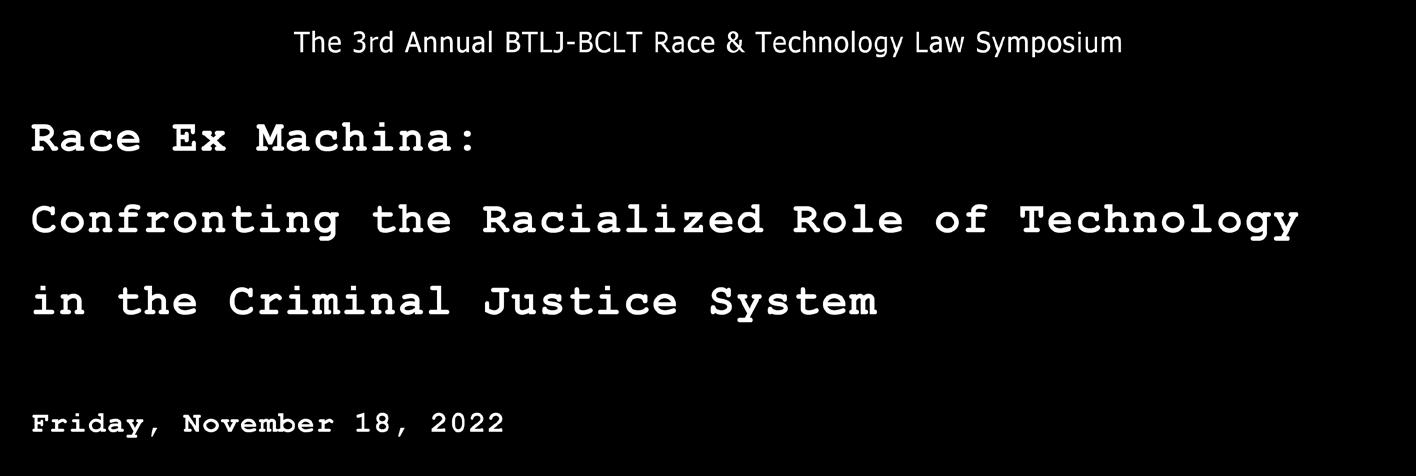
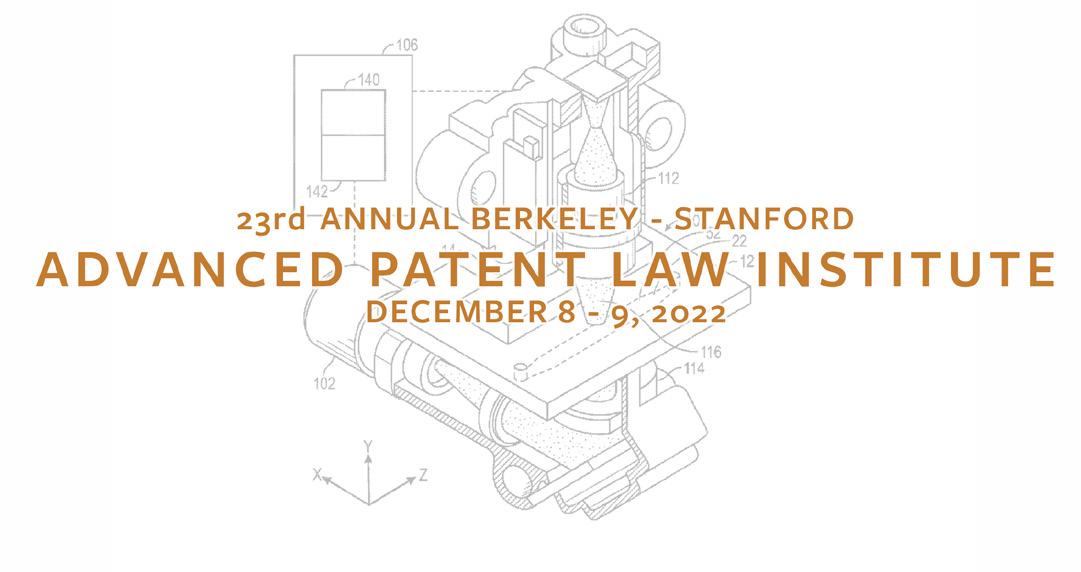
Annual Bulletin 2022-2023 | 7
BCLT Faculty
Over the last two decades, Berkeley Law has focused on developing the world’s leading IP and technology program. And for the past 19 years, we have been ranked as the No. 1 IP program in the country. The Berkeley Center for Law & Technology is integral to this success.
This type of sustained success can only be attributed to the quality and dedication of our faculty. We have 18 full-time law faculty focused on today’s critical technology-related issues. These faculty make up the directors of the Berkeley Center for Law & Technology. Their expertise covers a stunning breadth of topics— from patents to privacy to bioethics to computer crime to the use of technology in criminal cases. Together, their research has led to more than 100 publications over the past two years alone. Their focus on research is only rivaled by their dedication to teaching. Our faculty, for example, has published nine tech-focused textbooks that are currently used in schools across the country. They are superb classroom teachers.
Kenneth A. Bamberger
 Rosalinde and Arthur Gilbert Foundation Professor of Law
Rosalinde and Arthur Gilbert Foundation Professor of Law
Bamberger is an expert on government regulation and corporate compliance, especially with regard to issues of technology, free expression, and information privacy. In 2016, he and Professor Deirdre Mulligan were awarded the Privacy Leadership Award by the International Association of Privacy Professionals for their comparative study of privacy regimes and corporate privacy practices, Privacy on the Ground: Driving Corporate Behavior in the United States and Europe
His current work focuses on the governance of technology design to protect public values, the ways that digital platforms affect markets and consumers, and the meaning of cybersecurity.
Catherine Crump
Director of the Samuelson Law, Technology & Public Policy Clinic and Clinical Professor of Law
Crump’s work focuses on the application of First and Fourth Amendment principles to government use of new technologies, in particular to government surveillance. She has litigated cases in state and federal court and testified before state legislatures, Congress, and the European Parliament. Recent projects include a focus on street-level policing, including deployment of police body-worn cameras and the use of GPS tracking on youth in the juvenile justice system.
Catherine Fisk
Barbara Nachtrieb Armstrong Professor of Law
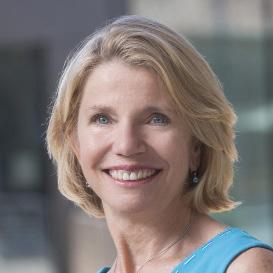
Fisk teaches courses on the law of work, and also on the legal profession and freedom of speech and association. She writes in the fields of labor and employment, employee-generated intellectual property, sociolegal history, and the legal profession. Professor Fisk has written several major works on employer-employee disputes over intellectual property, some of which won prizes from the American Historical Association and the American Society for Legal History. Her current research projects include a book on labor protest in the mid-twentieth century, and works on video game writers and how copyright law, antitrust law, and labor law structured the relations among dramatists and theater producers.

8 | Annual Bulletin 2022-2023
Chris Jay Hoofnagle
Teaching professor in the School of Law, with a dual appointment in the School of Information
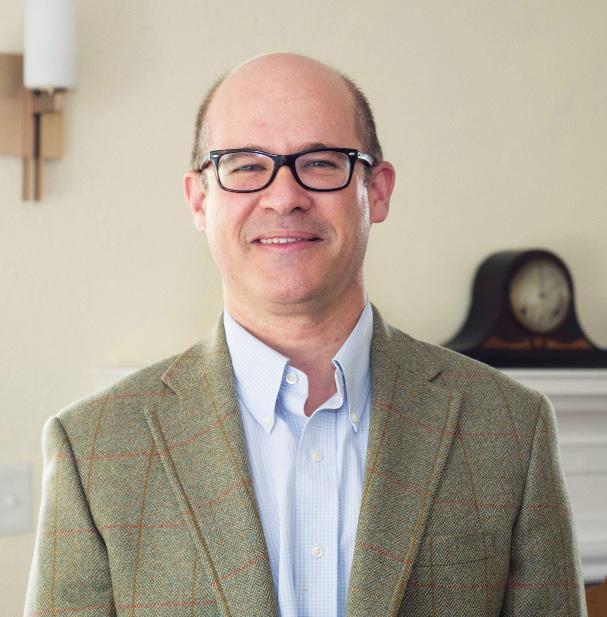
Hoofnagle is an expert in information privacy law and teaches about regulation of technology. Hoofnagle’s research focuses on identity theft, security breaches, and consumer perceptions and attitudes towards privacy laws. He has written extensively in the fields of information privacy, the law of unfair and deceptive practices, consumer law, and identity theft. Professor Hoofnagle is co-founder of the Privacy Law Scholars Conference
Sonia Katyal
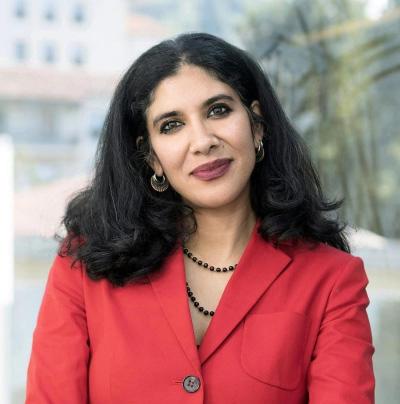
Associate Dean for Faculty Development and Research
Katyal’s scholarly work considers intellectual property, trademarks, trade secrecy, civil rights (including gender, race, and sexuality), LGBTQ rights, anti–discrimination, property theory, and innovation. Professor Katyal is the co-author of Property Outlaws (Yale University Press, 2010) (with Eduardo Peñalver), which studies the intersection between civil disobedience and innovation in property and intellectual property frameworks. In March of 2016, Professor Katyal was selected by U.S. Commerce Secretary Penny Pritzker to be part of the inaugural U.S. Commerce Department’s Digital Economy Board of Advisors.
Orin S. Kerr
William G. Simon Professor of Law
Kerr has written more than 65 law review articles, over 40 of which have been cited in judicial opinions (including eight in U.S. Supreme Court opinions). Professor Kerr has briefed and argued cases in the United States Supreme Court and three federal circuits and has testified six times before Congressional committees. In 2015, Chief Justice Roberts appointed Professor Kerr to serve on the Judicial Conference’s committee to review the Criminal Justice Act. After Circuit Court and Supreme Court clerkships, he served as a Special Assistant U.S. Attorney in the Eastern District of Virginia and as a trial attorney in the Computer Crime and Intellectual Property Section at the U.S. Department of Justice.
Peter S. Menell
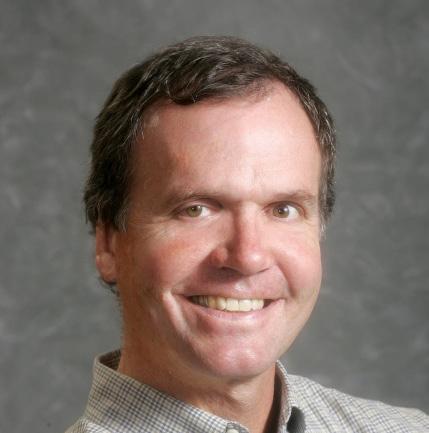
Koret Professor of Law
Menell will be advising the USPTO on various patent policy and other intellectual property matters. Professor Menell served as one of the inaugural Edison Scholars in 2012-13. Reflecting his training in science and technology, economics, and law, Professor Menell’s research focuses principally on the role and design of intellectual property law with particular emphasis on the digital technology and content industries. He has written over 100 articles and 15 books. His current projects explore intellectual property case management, judiciary reform, the scope of patentable subject matter, design protection, music copyright protection, trade secret whistleblower immunity, and technological disruption and social justice. In 2016, he founded Clause 8 Publishing, which seeks to promote the creation and dissemination of educational resources at fair prices.
Robert P. Merges
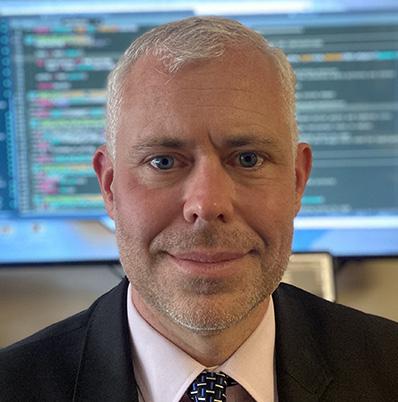 Wilson Sonsini Goodrich & Rosati Professor of Law and Associate Dean of Advanced Degree Programs and Global Engagement
Wilson Sonsini Goodrich & Rosati Professor of Law and Associate Dean of Advanced Degree Programs and Global Engagement
Merges is the author of Justifying Intellectual Property, published by Harvard University Press in 2011. A comprehensive statement of mature views on the ethical and economic foundations of IP law, the book reviews foundational philosophical theories of property and contemporary theories about distributive justice and applies them to IP; identifies operational high-level principles of IP law; and works through several pressing problems facing IP law today. Professor Merges also has undertaken extensive revisions to two of the casebooks he coauthors, to update them in light of the America Invents Act.
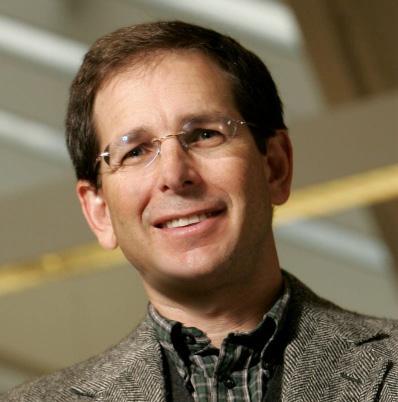
Annual Bulletin 2022-2023 | 9
Deirdre K. Mulligan
Professor in the School of Information and the School of Law
Mulligan’s research explores legal and technical means of protecting values such as privacy, freedom of expression, and fairness in emerging technical systems. Her current work explores the legal and policy implications of using predictive machine learning tools in different contexts, from legal discovery, to content moderation, to healthcare. She co-organizes the Algorithmic Fairness & Opacity Working Group, centering human values in the design and use of technical systems to support more equitable and just societies. In 2017, Professor Mulligan was appointed to a three-year term as a member of DARPA’s Information Science and Technology Study Group, the first lawyer on that body in its 30 year history. She was an inaugural member of the City of Oakland’s Privacy Advisory Commission; a founding board member of the Partnership for AI; a founding member of the Global Network Initiative; Chair Emeritus of the Board of Directors of the Center for Democracy & Technology; and the founding Director of the Samuelson Law, Technology & Public Policy Clinic.
Tejas N. Narechania
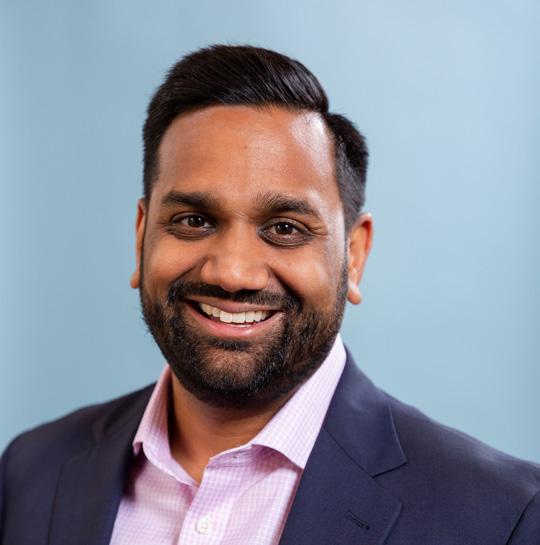
Robert and Nanci Corson Assistant Professor of Law Narechania focuses on matters related to telecommunications regulation and intellectual property. Professor Narechania clerked for Justice Stephen G. Breyer of the Supreme Court of the United States (2015-2016) and for Judge Diane P. Wood of the U.S. Court of Appeals for the Seventh Circuit (2011-2012). He has advised the Federal Communications Commission on network neutrality matters, where he served as Special Counsel (2012-2013). Professor Narechania’s research has appeared in the Columbia Law Review, Georgetown Law Journal, and the Michigan Law Review, among other venues, and his work has been cited by the White House, in the work of the Supreme Court and the federal Courts of Appeals, as well as the New York Times and the Washington Post.
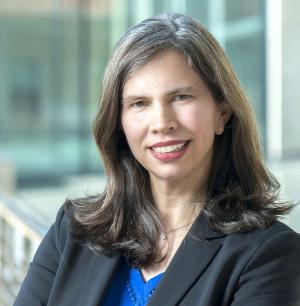
Osagie K. Obasogie
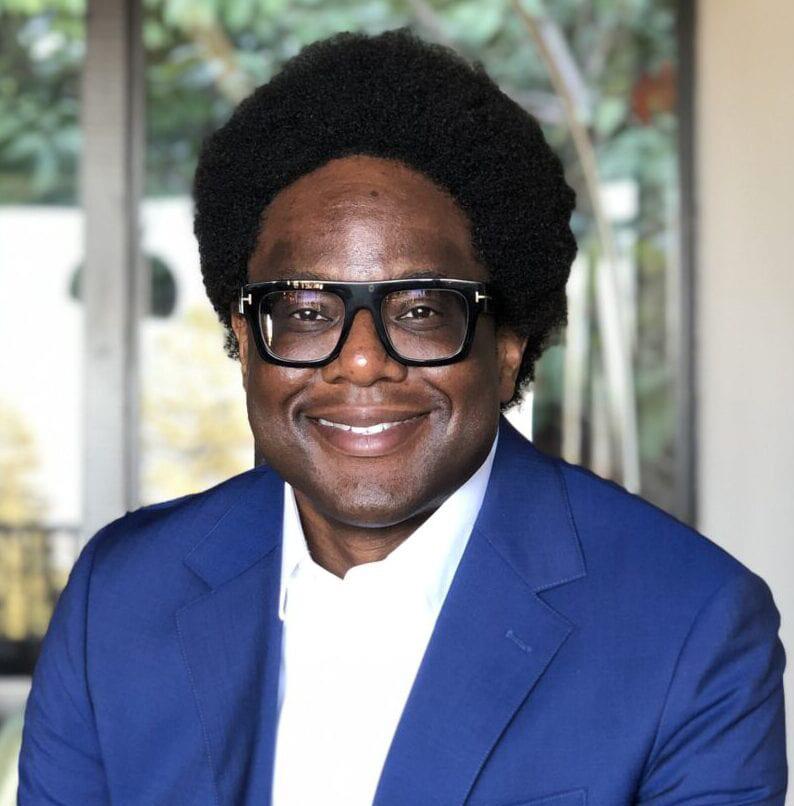
Haas Distinguished Chair and Professor of Law at Berkeley Law with a joint appointment in the School of Public Health Obasogie’s scholarly interests include Constitutional law, policing and police use of force, sociology of law, bioethics, race and inequality in law and medicine, and reproductive and genetic technologies. His writings have spanned both academic and public audiences. His first book Blinded By Sight: Seeing Race Through the Eyes of the Blind (Stanford University Press), was awarded the Herbert Jacob Book Prize. His current work examines the role of science, medicine, and medical professionals in hindering the ability to hold police officers accountable when they use excessive force; analyzes the legacy of the American eugenics movement and its contemporary impact on law, science, medicine, and technology; studies how legal doctrine produces police violence; and exposes the limitations of DNA databases when they are used in criminal investigations.
Andrea Roth Professor of Law
Before joining Berkeley Law, Roth worked as a trial and appellate attorney at the Public Defender Service for the District of Columbia (PDS) and a Thomas Grey Teaching Fellow at Stanford Law. She is currently the chair of the Legal Task Group of the National Institute on Standards and Technology’s Organization of Scientific Area Committees and was elected in 2021 to the American Law Institute. Her research focuses on the use of forensic science in criminal trials, the continuing viability of the lay jury, and the ways in which concepts of criminal procedure and evidentiary law must be re-theorized in an era of science-based prosecutions.

Pamela Samuelson
Richard M. Sherman Distinguished Professor of Law and Information
Much of Samuelson’s recent work has focused on updating and adapting U.S. copyright law to meet challenges of the digital age. She has written amicus curiae briefs as well as law review and other articles on major software IP cases such as Google v. Oracle. Professor Samuelson is co-foudner and board member of Authors Alliance, a nonprofit organization that represents the interests of authors who want their works to be widely available for the public good. She is Chair of the Board of Directors of the Electronic Frontier Foundation, as well as a Contributing Editor to Communications of the ACM, a computing professionals society.
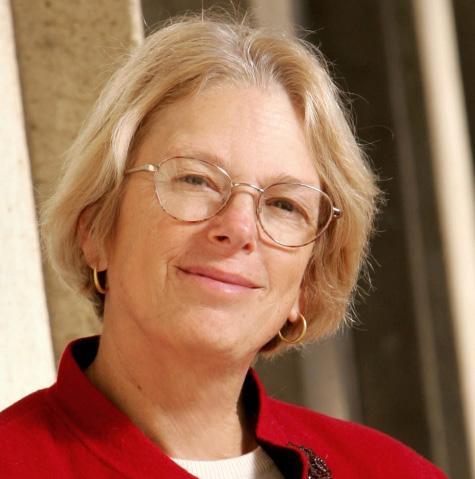
10 | Annual Bulletin 2022-2023
Paul Schwartz

Jefferson E. Peyser Professor of Law Schwartz’s scholarship focuses on how the law has sought to regulate and shape information technology. His most frequent areas of publication concern information privacy and data security. At present, Professor Schwartz is engaged in research into comparative privacy developments in the U.S. and the European Union, cloud computing, and the interplay between state and federal privacy law.
Erik Stallman
Associate Director of the Samuelson Law, Technology & Public Policy Clinic and Assistant Clinical Professor
Before joining the Samuelson Clinic, Stallman was a policy counsel at Google, focusing on copyright and telecommunications policy. He spent the previous 12 years in Washington D.C. working for the Federal Communications Commission, the U.S. House of Representatives, the law firm Steptoe & Johnson LLP, and then serving as General Counsel and Director of the Open Internet Project at the Center for Democracy & Technology. His research interests include copyright and machine learning, music licensing, and the intersection of copyright and media regulation. Erik is a graduate of Berkeley Law.
Jennifer M. Urban
Clinical Professor of Law and the Director of Policy Initiatives for the Samuelson Law, Technology & Public Policy Clinic


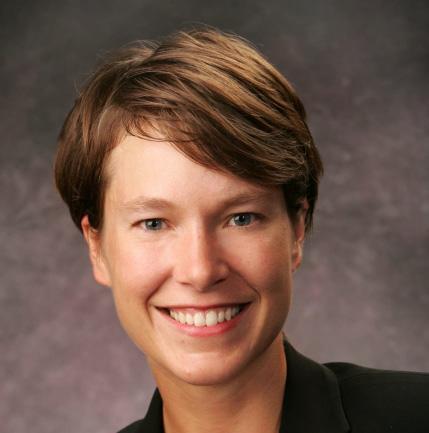
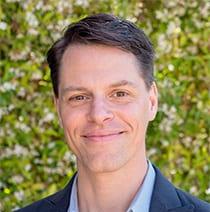
Urban’s work considers how the legal, private-ordering, and social systems that govern technology interact with values such as free expression, access to knowledge, freedom to create or innovate, and privacy. With Joe Karaganis, Professor Urban conceived and directs The Takedown Project, a consortium of scholars studying takedown regimes around the world. Her recent research of the DMCA notice-and-takedown system with Karaganis and Brianna L. Schofield reveals notice-and-takedown’s importance to copyright holders, online service providers, and the online ecosystem, along with some weaknesses. Professor Urban’s recent paper with Mark Lemley shows that judges with more experience handling patent cases are more likely to rule for defendants.
Molly Shaffer Van Houweling
Harold C. Hohbach Distinguished Professor of Patent Law and IP and Associate Dean for J.D. Curriculum and Teaching
Van Houweling’s teaching portfolio includes intellectual property, basic property law, and food law and policy. Much of Professor Van Houweling’s research focuses on copyright law’s implications for new information technologies (and vice versa). She often explores this and other intellectual property issues using theoretical and doctrinal tools borrowed from the law of tangible property. Professor Van Houweling is an Associate Reporter on the American Law Institute’s Restatement of the Law, Copyright, and an Adviser to the Restatement of the Law Fourth, Property. She is a member of the Board of Directors of the Authors Alliance and Chair of the Board of Creative Commons.
Rebecca Wexler
Assistant Professor of Law
Wexler focuses on evidence law, criminal procedure, privacy, and intellectual property protections surrounding new datadriven criminal justice technologies. Before joining Berkeley Law, Professor Wexler clerked for Judge Pierre N. Leval of the United States Court of Appeals for the Second Circuit and Judge Katherine Polk Failla of the United States District Court for the Southern District of New York. She worked as a Yale Public Interest Fellow at The Legal Aid Society’s criminal defense practice and as a Lawyer-in-Residence at The Data and Society Research Institute.
Annual Bulletin 2022-2023 | 11
Lecturers
Paul Clark , Partner, Seward & Kissel LLP. Specializes in the structuring of new financial products and banking legislation
David Almeling , Partner at O’Melveny & Myers and author of Trade Secret Law and Corporate Strategy . Identified by IAM 1000 as a “trade secret authority.” Specializes in trade secret counseling and litigation.
Marice Ashe , Founding CEO, ChangeLab Solutions (ret.) and pioneer of the emerging public health law movement.
David Bernstein , Chair of Debevoise’s Intellectual Property Litigation Group and coauthor of the leading treatise on advertising law, The Law of Advertising, Marketing and Promotion . Recognized as “one of the finest trademark litigators in the nation” by Chambers.
Jared Bobrow , Co-chair of Orrick’s Global Intellectual Property Group. Recognized as one of the world’s leading IP litigators by Chambers Global and IAM.
Tess Bridgeman , Co-Editor-in-Chief of Just Security, former Special Assistant to President Obama, former Associate Counsel to the President, and former Deputy Legal Adviser to the National Security Council (NSC). Specializes in foreign policy and national security policy.
Noah Brumfield, Partner at White & Case. Specializes in antitrust litigation.
Steven Carlson , Partner at Robins Kaplan, co-author of Patents in Germany and Europe: Procurement, Enforcement and Defense, and co-author of Patent Case Management Judicial Guide . Specializes in patent litigation.
Mark A. Cohen, Director of Asian IP Project at BCLT. Cohen served 13 years in the US government including four years as the first representative of the USPTO to China. He also served as a senior advisor the Director of the USPTO on China IP policies. He teaches Chinese intellectual property law and international trade and innovation.
Adam Cole , Associate at Wilson Sonsini. Specializes in patent matters in a variety of technical arts, including biotechnology, chemical engineering and materials science.
John Crittenden , Retired partner at Cooley. Specializes in trademark and copyright litigation.
Lothar Determann , Partner at Baker McKenzie and author of Determann’s Field Guide to Data Privacy Law and author of California Privacy Law : Practical Guide and Commentary . Recognized as one of the top 10 copyright attorneys and top 25 IP attorneys in California by the Daily Journal.
Angela Dunning, Partner at Cooley. Specializes in general business litigation, trademark, copyright and trade secret litigation, securities litigation and white collar defense.
D’Lonra C. Ellis , Vice President and General Counsel of the Oakland Athletics. Ellis works on all of the organization’s legal matters, including its intellectual property, real estate, employment, benefits, commercial, and government affairs matters. She is also an Adjunct Professor at UC Hastings College of Law.
Justin Erlich , Head of Trust & Safety Policy at TikTok, former Principal Tech Advisor for former California Attorney General Kamala Harris, and former Global Head of Policy for Autonomous Vehicles at Uber. Specializes in innovation development and public policy.
Kathryn Fritz , Former Managing Partner and current partner at Fenwick & West. Specializes in trademark law.
Tracy Genesen , General Counsel at The Wine Institute. Specializes in regulatory and corporate law, with an emphasis on the alcoholic beverage industry.
Rafael Gomez-Cabrera , Negotiator on network and studio television deals. Head of business affairs, original programming, at the AMC network, AMC Studios, BBC America, IFC and Sundance.
Christopher Hockett , Former global head of antitrust at Davis Polk. Former chair of the ABA Section of Antitrust Law. Recognized as one of “America’s Leading Business Lawyers” by Chambers.
Jeffrey Homrig , Vice Chair of Latham & Watkins Intellectual Property Litigation Practice. Specializes in patent litigation.
Eneda Hoxha , Associate, Latham & Watkins. Specializes in patent litigation.
Brian Israel , Associate General Counsel for International Law at NASA. Co-founder and former legal counsel at ConsenSys Space. Specializes in space law and policy.
Alexa Koenig , Lecturer in Residence and Executive Director of the Human Rights Center at Berkeley Law. Co-founder of the Human Rights Center Investigations Lab and co-chair of the Technology Advisory
12 | Annual Bulletin 2022-2023
Board of the Office of the Prosecutor at the International Criminal Court. Specializes in human rights investigations and international criminal law.
Eric Lancaster , Partner at Allen & Overy. Specializes in antitrust law.
Linda Lichter , Partner at Lichter, Grossman, Nichols, Adler, Feldman, Clark. Recognized by Hollywood Reporter as 100 Most Powerful Women in Hollywood. Recognized by Variety as top 500 most powerful people in the media business. Specializes in Hollywoodrelated transactions.
Brynly Llyr , General Counsel at CLabs. Specializes in financial regulation and blockchain-based financial products.
Barbara McClung , Chief Legal Officer at Caribou Biosciences. Specializes in IP and corporate legal strategies, with an emphasis on life sciences.
Sonal Mehta , Partner at WilmerHale and Past President of the Federal Circuit Bar Association. Specializes in patent litigation.
Jeffrey Ostrow , Partner at Simpson Thacher and Chair of the IP Practice group; recognized as a Litigation Star for Intellectual Property by Euromoney’s Benchmark Litigation and recognized by the Daily Journal as among the Top 100 IP Lawyers in California.
Matthew Perry , Federal program manager at Mandiant and former Federal Bureau of Investigation Supervisory Special Agent. Specializes in national security law.
Ed Reines , Partner at Weil Gotshal and co-head of the Patent Litigation and Life Sciences practice. Past president of the
Federal Circuit Bar Association; recognized by the Daily Journal as a Top Intellectual Property Lawyers.
Daniel Schacht , Partner and co-chair of the Intellectual Property Group at Donahue Fitzgerald. Specializes in IP law with an emphasis on the music industry.
Michael Schallop , Partner at Van Pelt, Yi & James. Specializes in patent prosecution and counseling.
Allison Schmitt , Fellow and Director of the BCLT Life Sciences Project. Specializes in studying the factors influencing innovation and regulation in the life sciences.
Carla Shapreau , Lecturer, Senior Fellow, and Curator at University of California Berkeley. Specializes in art and cultural property law.
Matthew Show, IP Counsel at IFF, former associate attorney at Morrison Foerster and Mintz Levin. Matthew’s areas of expertise are copyright, patents, and trademarks.
Todd Smithline , Managing principal at Smithline PC and former General Counsel of Marimba. Recognized as a World’s Leading IP Strategists by Intellectual Asset Management Magazine. Specializes in software law, including video game law.
Sam Swartz , Head of U.S. Public Policy at Stripe. Specializes in technology development and policy.
Talha Syed , Lecturer at Berkeley Law School. Specializes in patents and innovation policies for pharmaceuticals and health care allocation.
Tamar Todd , Legal director, New Approach PAC. Specializes in policy advocacy and regulatory implementation, including cannabis regulation and policy.
David Tollen , Founder of Tech Contracts Academy and author of the ABA IT contract manual, The Tech Contracts Handbook. Specializes in drafting and negotiating IT contracts.
John Trinidad , Partner in DP&F Law Firm’s Wine Law, Business, Alcohol Beverage, and Geographical Indications practice groups. John’s has expertise in a broad range of wine and alcohol beverage legal issues and in federal and state alcohol beverage regulations.
Bijal Vakil , Partner, Technology Practice at Allen & Overy. Specializes in IP and Corporate Law.
Lee Van Pelt , Partner at Van Pelt, Yi & James. Lead coach for national winners in the USPTO Patent Drafting Competition. Specializes in patent prosecution and counseling.
Daniel Wall , Partner at Latham & Watkins. Recognized as a “Star” in U.S. Antitrust Law by Chambers.
David Zapolsky , SVP, General Counsel and Secretary at Amazon. Specializes in technology law and policy.
Rachel Zuraw , Director of LL.M Professional Development, Berkeley Law. Specializes in health care litigation, compliance, and bioethics.
Annual Bulletin 2022-2023 | 13
BCLT Faculty Scholarship
2022-2023
Kenneth A. Bamberger
Revisiting a Jurisprudence of Obligation
Bamberger, Kenneth A.; Mayse, Ariel Evan, Touro L. Rev. (2022) Forthcoming
Allocating Responsibility in Content Moderation: A Functional Framework
Mulligan, Deirdre K.; Bamberger, Kenneth A., Berkeley Tech. L.J. (2022) Forthcoming
Verification Dilemmas in Law and the Promise of Zero-Knowledge Proofs
Bamberger, Kenneth A.; Canetti, Ran; Goldwasser, Shafi; Wexler, Rebecca; Zimmerman, Evan J., Berkeley Tech. L.J. (2022) Forthcoming
Pre-Modern Insights for Post-Modern Privacy: Jewish Law Lessons for the Big Data Age
Bamberger, Kenneth A.; Mayse, Ariel Evan, 36 J.L. & Religion 495 (2021)
Mark Cohen
China’s Practice of Anti-Suit Injunctions in SEP Litigation: Transplant or False Friend? Cohen, Mark, (May 31, 2022) in 5G and Beyond: Intellectual Property and Competition Policy in the Internet of Things (Jonathan Barnett ed., Dec. 2022), Available at SSRN: https://ssrn.com/ abstract=4124618 or http://dx.doi.org/10.2139/ ssrn.4124618
Comments on USDOJ, USPTO and NIST Draft Policy Statement on Licensing Negotiations
and Remedies for Standards-Essential Patents
Subject to Voluntary F/RAND Commitments Cohen, Mark (February 4, 2022). Available at SSRN: https://ssrn.com/abstract=4028258 or http://dx.doi.org/10.2139/ssrn.4028258
Catherine Crump
Why 72 Intellectual Property Scholars Supported Google’s Copyrightability Analysis in the Oracle Case
Samuelson, Pamela; Crump, Catherine, 36 Berkeley Tech. L.J. (2021)
Catherine Fisk
The Different American Legal Structures for Unionization of Writers for Stage and Screen
Fisk, Catherine L., in Handbook of Screenwriting Studies (2022) Forthcoming
Compelled Disclosure and the Workplace Rights It Enables
Fisk, Catherine L., 97 Ind. L.J. 1025 (2022)
The Fragility of Labor Relations in American Theatre
Fisk, Catherine L.; Salter, Brent, 8 Ohio St. L.J. 217 (2022)
Movement Lawyers: The Tension Between Solidarity and Independence Fisk, Catherine L., 97 Ind. L.J. (2022)
Foreword
Fisk, Catherine L., in Beyond the Algorithm: Qualitative Insights for Gig Work Regulation (Acevedo, Deepa Das, ed., 2021)
California Law Enforcement Labor Reform
Proposals
Fisk, Catherine L.; Grodin, Joseph; Henderson, Thelton; True, John; Yank, Ronald; Winograd, Barry, 35 Cal. Lab. & Emp. L. Rev. 1 (2021)
Assumptions About Antitrust and Freelance Work and the Fragility of Labor Relations in American Theatre
Salter, Fisk, Catherine L.; Brent, 83 Ohio State L.J. 217 (2022)
Precarious Work and Precarious Welfare: How the Pandemic Reveals Fundamental Flaws of the U.S. Social Safety Net
Albiston, Catherine R.; Fisk, Catherine L., Berkeley J. Emp. & Lab. L. (2021)
Yuan Hao
The Rise of ‘Centaur’ Inventors: How Patent Law Should Adapt to the Challenge to Inventorship Doctrine by Human-AI Inventing Synergies
Hao, Yuan. (August 10, 2022). Available at SSRN: https://ssrn.com/abstract=4186684 or http:// dx.doi.org/10.2139/ssrn.4186684
Chris Jay Hoofnagle
Law and Policy for the Quantum Age Hoofnagle, Chris Jay; Garfinkel, Simson L., Cambridge University Press (2022)
Sonia Katyal
Open Data/Open Government: The Tension
Between Public Accountability and Private (Re) Use
Katyal, Sonia; Stallman, Erik (2022) Forthcoming
Lex Reformatica
Katyal, Sonia., Daedalus (2022)
Trademark Search, Artificial Intelligence, and the Role of the Private Sector
Katyal, Sonia K.; Kesari, Aniket, 35 Berkeley Tech. L.J. 501 (2021)
The Gender Panopticon: Gender, AI and Design Justice
Katyal, Sonia K.; Jung, Jessica Y., 68 UCLA L. REV. (2021)
14 | Annual Bulletin 2022-2023
From Trade Secrecy to Seclusion
Katyal, Sonia K.; Graves, Tait, 109 Geo. L.J. 1337 (2021)
Orin Kerr
Focusing the CFAA in Van Buren Kerr, Orin S., Sup. Ct. Rev. (2022) Forthcoming
Line-drawing and Legal Education
Kerr, Orin S., J. Legal Educ. (2022) Forthcoming Katz as Originalism
Kerr, Orin S., 71 Duke L.J. 1047 (2022)
Computer Crime Law
Kerr, Orin S. (5th ed. 2021)
The Fourth Amendment Limits of Internet Content Preservation
Kerr, Orin S., 65 St. Louis U. L.J. 753 (2021)
Peter Menell
Patent Case Management Goes CrossInstitutional and Global Menell, Peter S., Patently-O (May 23, 2022), https://patentlyo.com/patent/2022/05/patentmanagement-institutional.html
Patent Case Management: A Comprehensive Guide for District Court, ITC, and PTAB Litigation
Menell, Peter S.; Schmitt, Allison A. (2022)
Forthcoming
Intellectual Property and Social Justice: Mapping the Next Frontier
Menell, Peter Seth, in Handbook of Intellectual Property and Social Justice: Access, Inclusion, Empowerment (Jamar, Steven D.; Mtima, Lateef eds., 2022) Forthcoming
WIPO International Patent Case Management Judicial Guide: United States
Menell, Peter Seth; Schmitt, Allison A. in WIPO
(World Intellectual Property Organization)
International Patent Case Management Judicial Guide (Min, Eun-Joo ed., 2022) Forthcoming
Proving Copying
Menell, Peter Seth; Balganesh, Shyamkrishna, Wm. & Mary L. Rev. (2022) Forthcoming
Trade Secret Case Management Judicial Guide
Menell, Peter Seth; Almeling, David; Cundiff, Victoria A.; Pooley, James; Toren, Peter; Rowe, Elizabeth; Wexler, Rebecca (2022) Forthcoming
Intellectual Property in the New Technological Age: Volume II - Copyrights, Trademarks and State IP Protections 2022
Menell, Peter Seth; Lemley, Mark A.; Merges, Robert P.; Balganesh, Shyamkrishna (2022)
Intellectual Property in the New Technological Age: Volume I - Perspectives, Trade Secrets, and Patents 2022
Menell, Peter Seth; Lemley, Mark A.; Merges, Robert P.; Balganesh, Shyamkrishna (2022)
Intellectual Property Statutes: 2022
Menell, Peter Seth; Lemley, Mark A.; Merges, Robert P.; Balganesh, Shyamkrishna (2022)
The Design Patent Emperor Wears No Clothes: Responding to Advocates of Design Patent Protection for Functionality
Menell, Peter S.; Corren, Ella, 36 Berkeley Tech. L.J. 231 (2022)
Design Patent Law’s Identity Crisis
Menell, Peter S.; Corren, Ella, 36 Berkeley Tech. L.J. 1 (2022)
Reflections on Music Copyright Justice
Menell, Peter S., 49 Pepp. L. Rev. 533 (2022)
Design Protection and Functionality: Does the PTO or the Copyright Office Apply a More Rubbery Stamp?
Menell, Peter S.; Corren, Ella, Patently-O (Nov. 21, 2021) https://patentlyo.com/patent/2021/11/ protection-functionality-copyright.html
Google v Oracle and the Grateful (API) Dead: What a long strange trip it’s been
Menell, Peter S., San Francisco Daily Journal (Apr. 12, 2021)
A Remix Compulsory Licensing Regime for Music Mashups
Menell, Peter S., in The Routledge Companion to Copyright and Creativity in the 21st Century (Bogre, Michelle; Wolff, Nancy eds., 2021)
Robert Merges
American Patent Law: A Business and Economic History Merges, Robert P. (2022) Forthcoming
Intellectual Property Strategy for Business Merges, Robert P.; Liu, Fang (Helen) (2022) Forthcoming
Intellectual Property in the New Technological Age: Volume II - Copyrights, Trademarks and State IP Protections 2022
Menell, Peter Seth; Lemley, Mark A.; Merges, Robert P.; Balganesh, Shyamkrishna (2022)
Intellectual Property in the New Technological Age: Volume I - Perspectives, Trade Secrets, and Patents 2022
Menell, Peter Seth; Lemley, Mark A.; Merges, Robert P.; Balganesh, Shyamkrishna (2022)
Intellectual Property Statutes: 2022
Menell, Peter Seth; Lemley, Mark A.; Merges,
Photo by Brittany Hosea-Small
Annual Bulletin 2022-2023
| 15
Robert P.; Balganesh, Shyamkrishna (2022)
Deirdre Mulligan
Allocating Responsibility in Content Moderation: A Functional Framework
Mulligan, Deirdre K.; Bamberger, Kenneth A., Berkeley Tech. L.J. (2022) Forthcoming
Reconfiguring Diversity and Inclusion for AI Ethics
Chi, Nicole; Lurie, Emma; Mulligan, Deirdre, K., in Proceedings of the 2021 AAAI/ACM Conference on AI, Ethics, and Society, pp. 447-457. (2021)
Searching for Representation: A Sociotechnical Audit of Googling for Members of Congress Lurie, Emma; Mulligan Deirdre K., 4th FAccTRec Workshop: Responsible Recommendation at RecSys’21 (2021)
Who needs imagination? Exploring legal professionals’ lack of curiosity about e-discovery tools
Lurie, Emma; Mulligan Deirdre K., Designing Technological Systems with the Algorithmic Imaginations of Those Who Labor Workshop at CHI’21. (2021)
Lex Algorithmica: Humans and Systems in Content Governance
Mulligan Deirdre K., Bamberger, Kenneth A., Berkeley Tech. L.J. (2021) Forthcoming
Tejas Narechania
Convergence and a Case for Broadband Rate Regulation
Narechania, Tejas N., Berkeley Tech. L.J. (2022) Forthcoming
Certiorari in Important Cases
Narechania, Tejas N., 122 Colum. L. Rev. 923 (2022)
Machine Learning as Natural Monopoly Narechania, Tejas N., 107 Iowa L. Rev. 1543 (2022)
Arthrex and the Politics of Patents
Narechania, Tejas N., 12 Calif. L. Rev. Online 65 (2022)
Osagie K. Obasogie
Beyond Qualified Immunity: Criminal Procedure’s Obstruction of Constitutional Tort Litigation Obasogie, Osagie K.; Newman, Zachary, S. Cal. L. Rev. (2022) Forthcoming
An Empirical Examination of Race, Racism, and Police Use of Force in 21st Century Criminology Obasogie, Osagie K.; Provenzano, Peyton, UCLA L. Rev. (2022) Forthcoming
Perfect Alibi: Murder In Silicon Valley and the False Promise of DNA Databases Obasogie, Osagie K. (2022) Forthcoming
Toward Abolitionist Approaches in Medicine Obasogie, Osagie K., 24 AMA J. Ethics 167 (2022)
Toward Abolition Medicine Obasogie, Osagie, K., 24 AMA J. Ethics (Special Issue) (2022)
Plainly Incompetent: How Qualified Immunity Became an Exculpatory Doctrine of Police
Excessive Force Obasogie, Osagie K.; Zaret, Anna, 170 U. Pa. L. Rev. 407 (2022)
Excited Delirium and Police Use of Force Obasogie, Osagie K., 107 Va. L. Rev. 1545 (2021)
Andrea Roth
Forensic Identification Evidence Roth, Andrea; Moriarty, Jane; Beety, Valena, in Reference Manual on Scientific Evidence, 4th ed. (Federal Judicial Center ed., 2024) Forthcoming
What Machines Can Teach Us About “Confrontation”
Roth, Andrea, Duq. L. Rev. (2022) (Symposium Keynote) Forthcoming
The Lost Right to Jury Trial in “All” Criminal Prosecutions
Roth, Andrea, Duke L.J. (2022) Forthcoming
Principles to Govern Regulation of Digital and Machine Evidence Roth, Andrea, in (Ro)Bot-Human Interaction and the Digital Shift in the Administration of Criminal Justice (Swiss National Research Foundation ed., 2022)
Forthcoming
From Damage Caps to Decarceration: Extending Tort Law Safeguards to Criminal Roth, Andrea; Bambauer, Jane R., Sentencing, 101 B.U. L. REV. (2021)
Pamela Samuelson
Some Misconceptions about Software in the Copyright Literature Bloch, Joshua; Samuelson, Pamela, in ACM Computer Science & Law Conference (2022)
Forthcoming
Copyright Implications of Emulation Programs
Samuelson, Pamela, 65 Comm. ACM (2022)
Withholding Injunctions in Copyright Cases: The Impact of eBay Samuelson, Pamela, 63 Wm. & Mary L. Rev. (2022)
Interfaces and Interoperability After Google v. Oracle
Samuelson, Pamela; Lemley, Mark A., 100 Tex. L. Rev. (2021)
Why 72 Intellectual Property Scholars Supported
2022-2023
16 | Annual Bulletin
Google’s Copyrightability Analysis in the Oracle Case
Samuelson, Pamela; Crump, Catherine, 36 Berkeley Tech. L.J. (2021)
Pushing Back on Stricter Copyright ISP Liability Rules
Samuelson, Pamela, 27 Mich. Tech. L. Rev. 299 (2021)
Text and Data Mining of In-Copyright Works: Is It Legal?
Samuelson, Pamela, 64 Comm. ACM (Nov. 2021)
Reimplementing Software Interfaces Is Fair Use, Samuelson, Pamela, 64 Comm. ACM 24 (July 2021)
The Push for Stricter Rules for Internet Platforms
Samuelson, Pamela, 64 Comm. ACM 26 (Mar. 2021)
Allison Schmitt
Patent Case Management: A Comprehensive Guide for District Court, ITC, and PTAB Litigation
Menell, Peter Seth; Schmitt, Allison A. (2022) Forthcoming
WIPO International Patent Case Management
Judicial Guide: United States Menell, Peter Seth; Schmitt, Allison A. in WIPO (World Intellectual Property Organization)
International Patent Case Management Judicial Guide (Min, Eun-Joo ed., 2022) Forthcoming
Paul Schwartz
Privacy and/or Trade Schwartz, Paul M.; Chander, Anupam, 90 U. Chi. L. Rev. (2023) Forthcoming
Privacy Law Fundamentals
Schwartz, Paul M.; Solove, Daniel J. (6th ed. 2022)
ALI Data Privacy: Overview and Black Letter Text Schwartz, Paul M.; Solove, Daniel J., 68 UCLA L. Rev. 1252 (2022)
The Data Privacy Law of Brexit: Theories of Preference Change
Schwartz, Paul M., 22 Theoretical Inq. L. 111 (2021)
Privacy and The Media Schwartz, Paul M.; Solove, Daniel J., (4th ed. 2021)
Information Privacy Law
Schwartz, Paul M.; Solove, Daniel J., (7th ed. 2021)
Jennifer Urban Privacy Of, For, and By the People Urban, Jennifer M., San Diego L. Rev. (2022)
Forthcoming
The Right to Contest AI Kaminski, Margot E., Urban, Jennifer M.; Colum. L. Rev. (2021)
Rebecca Wexler
Life, Liberty, and Data Privacy: The Global Cloud and the Criminally Accused Wexler, Rebecca, Tex. L. Rev. (2023) Forthcoming
Digital Privacy for Reproductive Choice in the Post-Roe Era Huq, Aziz; Wexler, Rebecca, N.Y.U. L. Rev. (2023)
Forthcoming
A Signaling Theory of Privilege Law Wexler, Rebecca, Vand. L. Rev. (2023)
Forthcoming
Verification Dilemmas in Law and the Promise of Zero-Knowledge Proofs Bamberger, Kenneth A.; Canetti, Ran; Goldwasser, Shafi; Wexler, Rebecca; Zimmerman, Evan J., Berkeley Tech. L.J. (2022) Forthcoming
Adversarial Scrutiny of Evidentiary Statistical Software
Abebe, Rediet; Hardt, Moritz; Jin, Angela; Miller, John; Schmidt, Ludwig; Wexler, Rebecca, 2022 ACM Conference on Fairness, Accountability, and Transparency (FAccT ‘22)
Using Zero-Knowledge to Reconcile Law Enforcement Secrecy and Fair Trial Rights in Criminal Cases Bitan, Dor; Canetti, Ran; Goldwasser, Shafi; Wexler, Rebecca, 2022 ACM Symposium on Computer Science and Law (CSLaw ‘22)
Trade Secret Case Management Judicial Guide Menell, Peter Seth; Almeling, David; Cundiff, Victoria A.; Pooley, James; Toren, Peter; Rowe, Elizabeth; Wexler, Rebecca, (2022) Forthcoming
Bulletin 2022-2023
Annual
| 17
New Fellow Spotlights
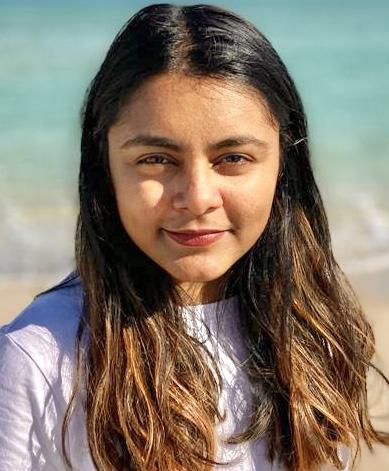
Ramya Chandrasekhar is BCLT’s newest Research Fellow. She leads the Biometrics Project, which aims to study biometric data regulation from a critical and comparative perspective. The project will bring together experts from multiple jurisdictions to discuss key aspects of global biometric data regulations. Through the project, Ramya is also interested in exploring more foundational questions about the changing relationship between the body and “data about the body” (such as biometric data). By leveraging her training as a lawyer who has worked in multiple sectors, Ramya is keen to explore the ways in which personal data protection law is both shaped by and shapes the relationship between the body and ”data about the body” in the age of Big Data. Her research interests lie in data and technology law, critical data studies, and science and technology studies.
Prior to joining BCLT, Ramya collaborated with the Digital Development team at the World Bank and the Information Communication and Technology team at UNICEF. She has also worked with academic research centres studying different aspects of digital development, such as Guarini Global Law & Tech as well as the Centre for Human Rights and Global Justice. Ramya holds a Master of Law from New York University and a Bachelor of Law and Humanities from the National University of Juridical Sciences, India. She is qualified to practice in India, and has worked with both law firms and civil society in India, on personal data protection, FinTech and data governance.
Dr. Hao Yuan joined BCLT in 2021 as a Senior Fellow on our Asia IP Project. Yuan’s academic interest is focused on the specific role IP plays in fostering a healthy ecosystem of innovation, and the curious interplay of IP and antitrust under this theme, particularly in the dawning age of AI-assisted information economy. Her recent paper (En) is The Rise of “Centaur Inventors”: How Patent Law Should Adapt to the Challenge to Inventorship Doctrine by Human-AI Inventing Synergies, as a chapter of her book titled “Human Creativity and IP in an AI-enabled Age”. On the interplay of AML and IP, her recent paper is Through the Anti-monopoly Lens: What Constitutes “Unfairly High Patent Pricing” in China?

Consistent with her academic interests, Yuan has hosted a series of indepth discussions on controversial issues of standard essential patent (“SEP”) licensing and litigation since she joined BCLT, aiming to help facilitate an inclusive and constructive communication. Yuan is also the director of the new Berkeley-China IP and Tech Law Engagement Initiative under the Asia IP Project, which aims to strengthen a “peopleto-people” channel that continues to build on the good wills of the transpacific IP and Tech Law communities at a time of difficulty.
Prior to Berkeley, Yuan taught patent law and anti-monopoly law (“AML”) at the Tsinghua University School of Law (2015-2020). Yuan has advised multiple IP and AML legislation projects in China, including the Guangdong High Court’s Guidelines on SEP Litigation (2018), and SAMR’s Anti-monopoly Guidelines for IP (2020). She also participated in a dozen litigation, enforcement and arbitration cases, including landmark SEP cases, as an advisory member or expert witness. Before becoming an academic Yuan practiced years in IP litigation at King Wood & Mallesons, and is qualified to practice law in New York and China. Yuan received her J.D. from Brooklyn Law School (2011), Ph.D. in Nano-electronics from Penn State University (2006), and B.S. in Physics from Peking University (1999). Yuan received an IP square fellowship from the Stanford Hoover Institution in 2017.
18 | Annual Bulletin 2022-2023

“Tech and IP are heavily impacted by global regulations. Our fellows help make sense of those global regulations and help companies navigate the ever-shifting landscape.”
Wayne Stacy Executive Director, BCLT
Tech Curriculum
2022-2023
Fall 2022
Advanced Samuelson Clinic & Seminar
Antitrust Law Antitrust and Innovation Biotechnology Law
Business Associations Business of Intellectual Property
Computer Crime Law Computer Law Current Topics in National Security
Drafting and Negotiating Sports Law Contracts
Entertainment Law in the TV Industry FinTech: Tools for Analyzing New Financial Products
Gaming Law: Gambling, Fantasy Sports, Online Wagers
Information Privacy Law Intellectual Property Law Law and Technology Writing Workshop
Life Sciences & Innovation Workshop I
Negotiating Hollywood Contracts
Patent Prosecution
Patent Remedies
Representing Professional Athletes
Samuelson Clinic & Seminar Technology Law and Public Policy Seminar
Trade Secret Law Topics in Privacy and Security Law
Transnational Intellectual Property Law Video Game Law
Spring 2023
Advanced IT Contracts: Drafting and Negotiating
Advanced Samuelson Clinic & Seminar
Antitrust and Technology Platforms
Art and Cultural Property Law
Bioethics: From Nuremberg to Modern Times
Business Associations
California Privacy Law Chinese IP Law Computer Programming for Lawyers
Copyright, Competition, and Technology
Copyright Law
Cybersecurity Law and Policy Disruptive Technologies and Regulation
FinTech Innovation and Financial Inclusion
First Amendment
Hate Speech, Disinformation, and Online Harassment: Regulation of and by Internet Platforms
Intellectual Property Law
International Antitrust Law Life Sciences & Innovation Workshop II
Marijuana Law and Policy
National Security Law: A Practitioner’s Perspective Patent Law
Patent Litigation I Preparing to Practice Patent Law
Public Health Law
Regulated Digital Industries: Telecommunications Law & Policy for a Modern Era
Samuelson Clinic & Seminar Sports Law
Technology for Lawyers
Topics in Pharmaceutical Policy: The Case of Biotherapeutics
Trademark Law Trademark Practice Wine Law
20 | Annual Bulletin 2022-2023
Recent Faculty-Authored Coursebooks


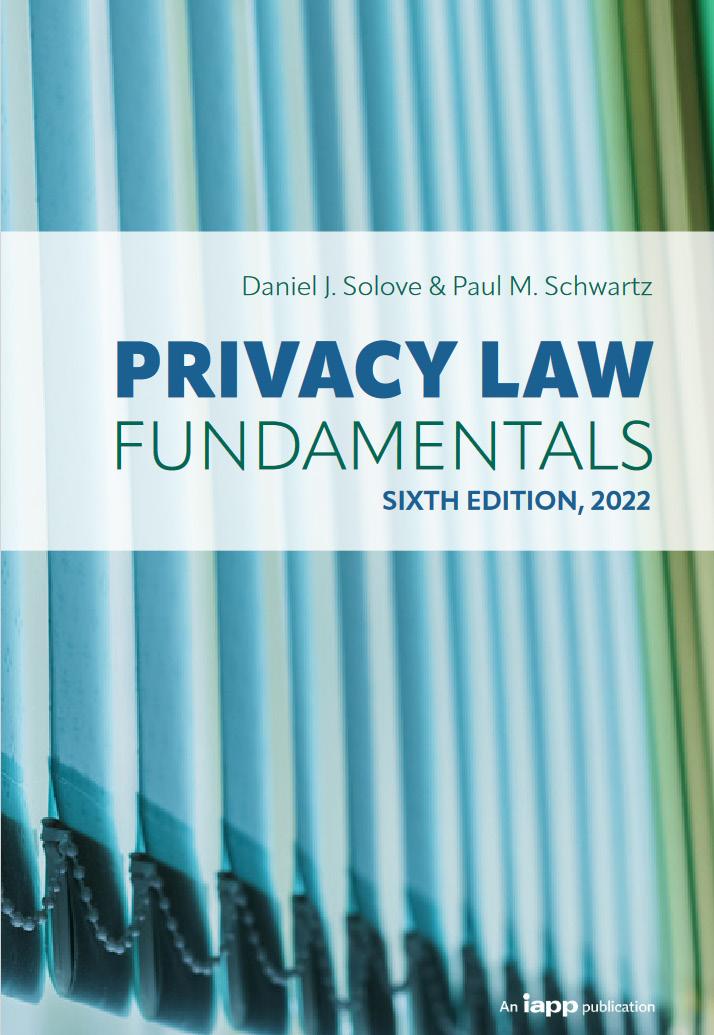
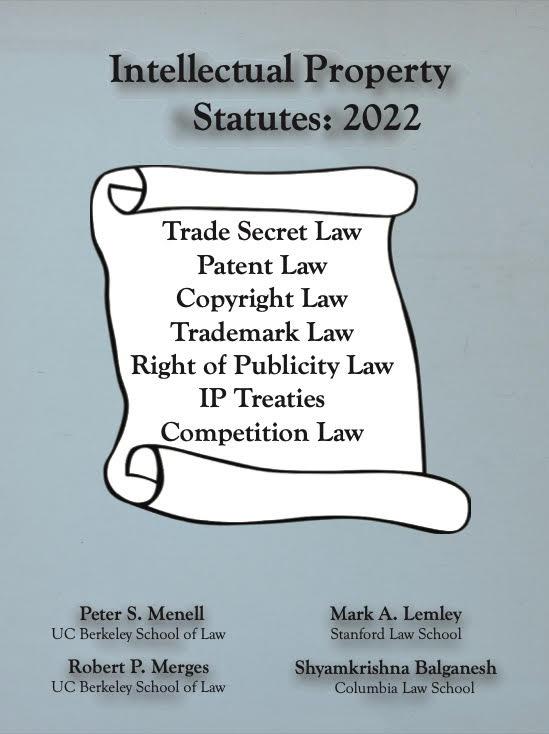

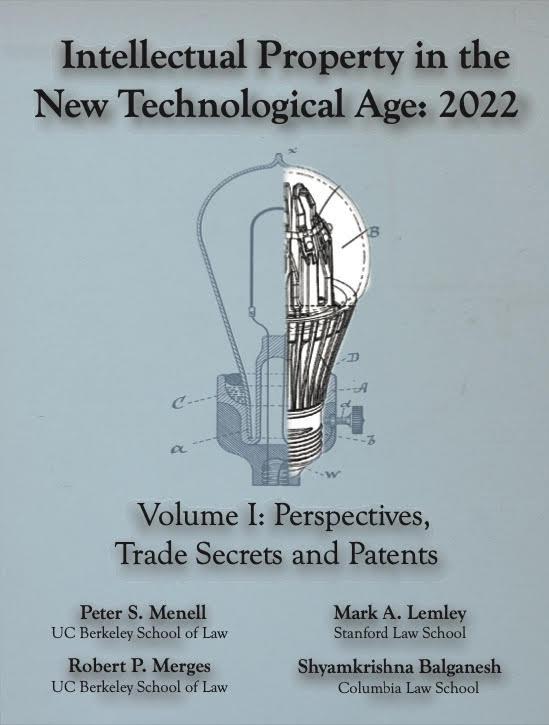
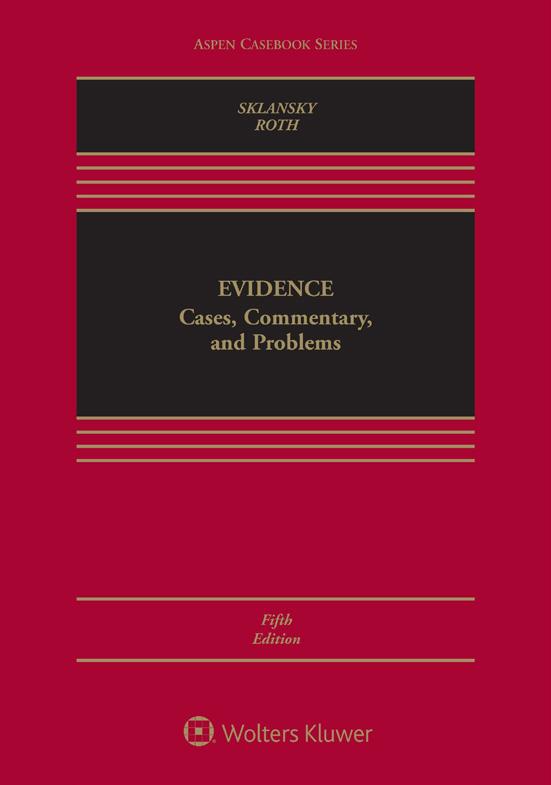

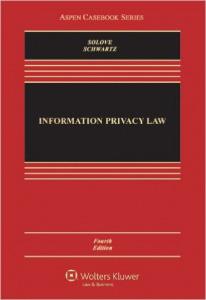
Annual Bulletin 2022-2023 | 21 Clinical Program 2019-2020 | 21
Asia IP & Technology Law Project
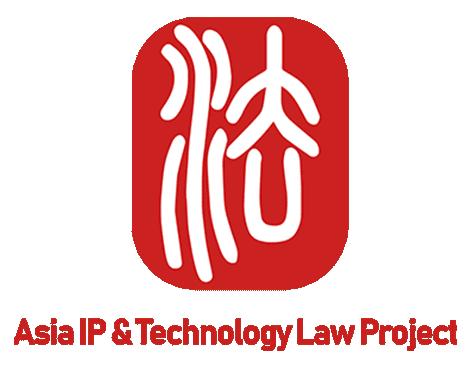
Now entering its fifth year, the Asia IP & Technology Law Project continues to offer a unique forum for Asian and American companies, law firms, academics, trade associations, and government officials to learn about developments in IP law on both sides of the Pacific, exchange views, and develop deeper knowledge on issues of common concern. The project brings data-driven insight into the complex IP landscape in China and other Asian venues.
During the past several years, the Asia IP Project has expanded its global audience and attendance at its workshops and conferences, and has also expanded its staff, which now includes Dr. Hao Yuan, formerly of Tsinghua Law School, as a Senior Fellow, Ramya Chandrasekhar as a Research Fellow and Riccardo Vecellio Segate as a Visiting PhD Researcher. The Asia IP Project has expanded to a global audience and attendance at its workshops, conferences, and other events has soared. Our extensive program of international conferences, book talks, webinars and expert roundtables regularly attract hundreds of participants per session, from law firms, corporations, academia, and officials from U.S. and foreign governments.
Mark Cohen, Senior Fellow and Director of the BCLT Asia IP Project. Mark was recently ranked among the 300 most influential IP strategists in the world, by IAM.
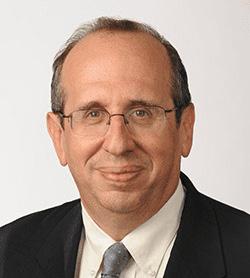
22 | Annual Bulletin 2022-2023
Life Sciences Project
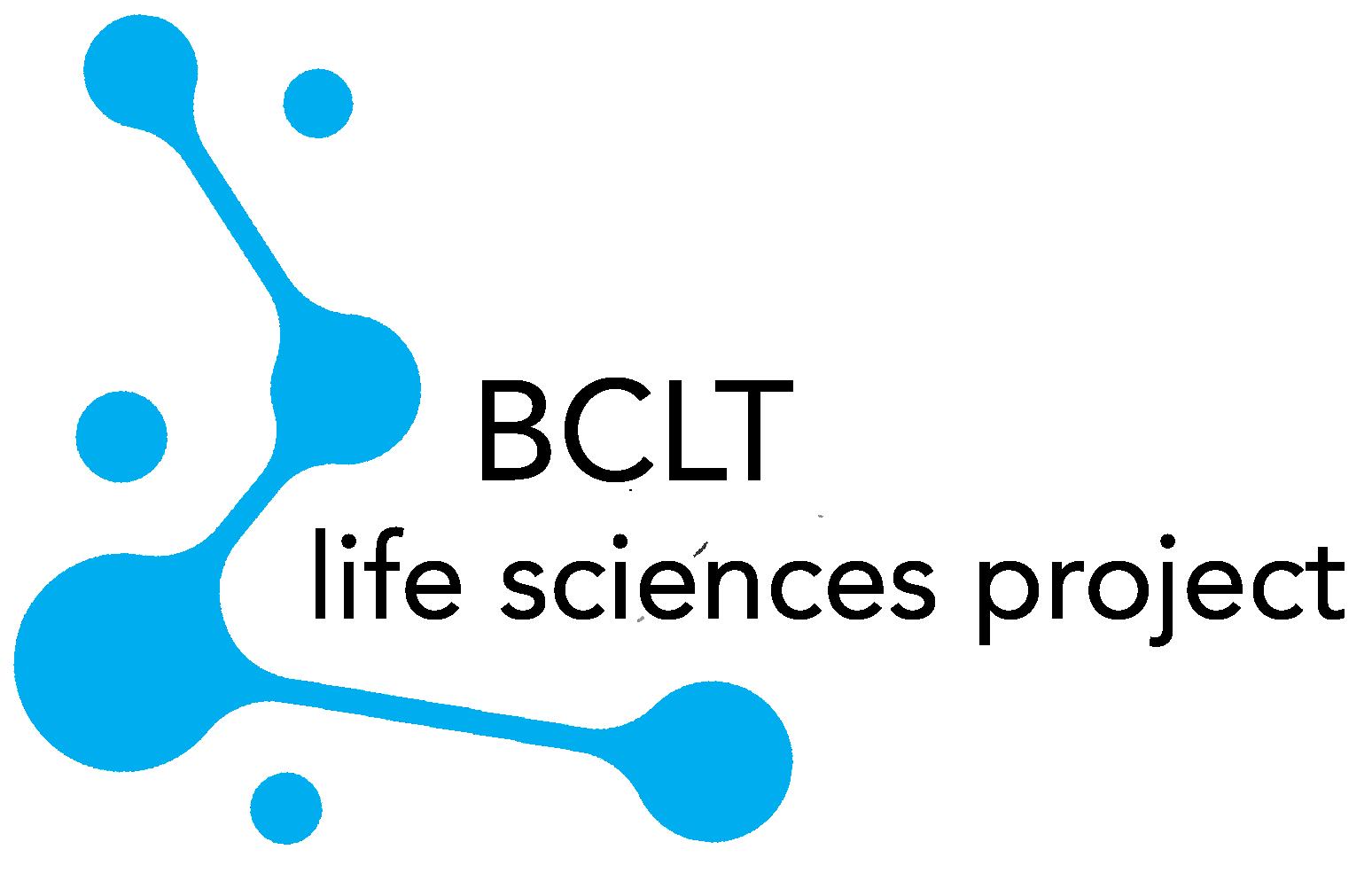
In Fall 2021, BCLT inaugurated the Life Sciences Project, which has already built a key space for students, academics, practitioners, and companies to explore IP, innovation, and regulatory issues in the life sciences. In its first year, the Life Sciences Project hosted several well-attended webinars and a highly successful first Advanced Life Sciences Institute in April 2022, with over 100 in-person participants. We are also thrilled to welcome Ramya Chandrasekhar, BCLT’s newest Researcher Fellow. Ramya’s research will greatly support the Life Sciences Project.
Current research includes the study of patent and regulatory protection for drug and medical device innovations, development of new legal regimes for AI and healthcare data, and health data privacy regulations (including biometric regulation in key jurisdictions throughout the world).
Allison Schmitt, Fellow and Director of the Life Sciences Project. Schmitt brings significant technical expertise to the Life Sciences Project, through her PhD training in bioorganic and physical biochemistry problems. Schmitt is a graduate of Berkeley Law, and after graduation she clerked for the Honorable Stanley R. Chesler at the District of New Jersey and the Honorable Kathleen M. O’Malley at the Federal Circuit. She then spent several years in private practice, focused on life sciences patent litigation, patent counseling and strategy, and policy matters.

Annual Bulletin 2022-2023 | 23
Students
Berkeley Law attracts the very best students and offers them the most comprehensive instructional program in law and technology available anywhere in the world.
The unmatched experience of Berkeley Law makes its students sought-after hiring prospects by top law firms, judges, government agencies, and other organizations.
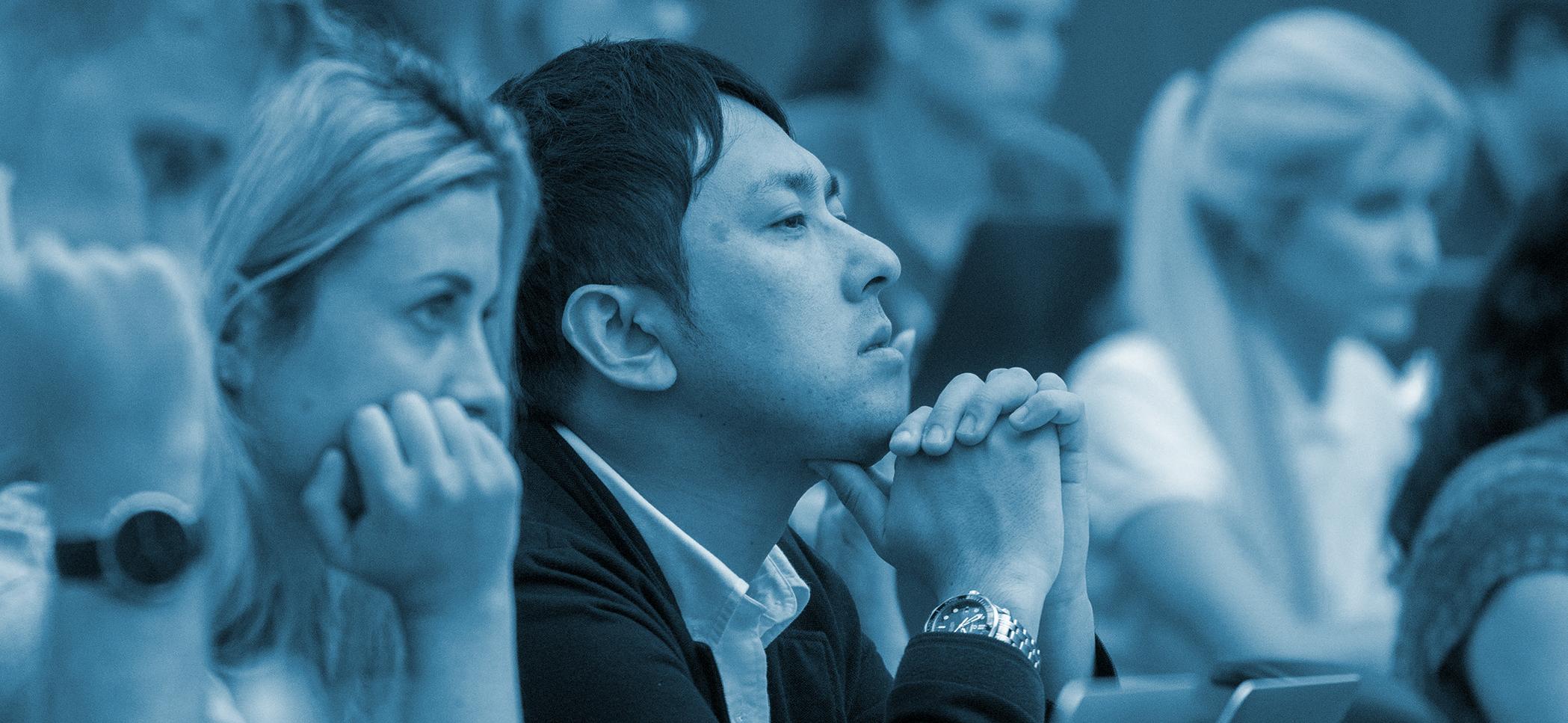
TECH-FOCUSED STUDENT GROUPS
We support a wide range of student groups, which allow students to develop friendships and pursue interests extending beyond the classroom.
Berkeley Journal of Entertainment and Sports Law
BERC Law
BERC Law is the law school branch of the Berkeley Energy & Resources Collaborative, a student-led organization which aims to connect and educate the UC Berkeley energy and resources community. BERC Law helps to inform law students about current legal practice and advances in the fields of energy, climate and clean technologies through curriculum development, an expanding alumni and professional network, the promotion of events and discussions centered on green issues, and creation of a Career Guide for Energy, Climate and CleanTech Law
The Berkeley Journal of Entertainment and Sports Law (BJESL) is a student-run organization dedicated to promulgating scholarship on legal issues that contemporaneously impact various entertainment industries, both domestically and internationally. As an interactive and electronic law review, BJESL presents a unique platform for rich discourse on legal topics such as copyright, trademark, art, sports, film and television, communications and broadcast media, First Amendment, right to privacy, music, antitrust and unfair competition, contracts, and more!
24 | Annual Bulletin 2022-2023






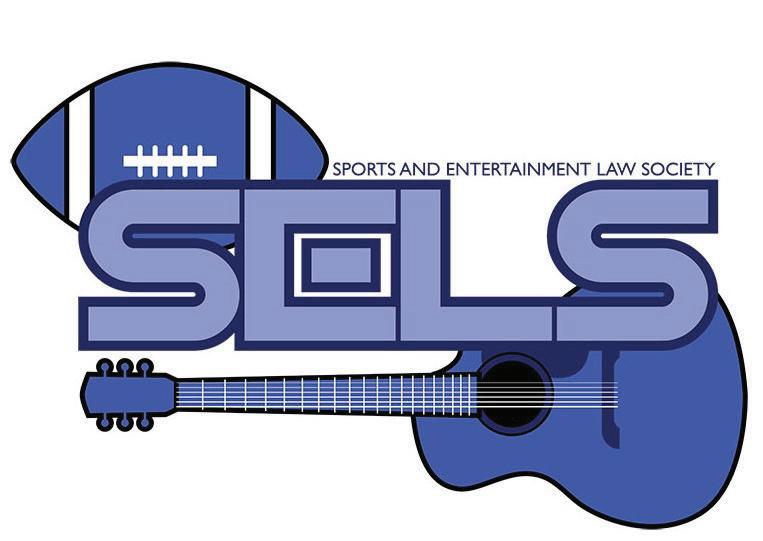



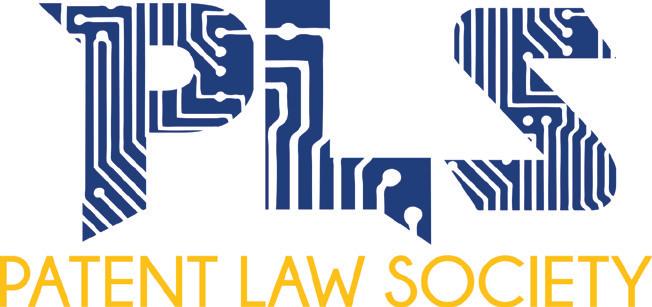
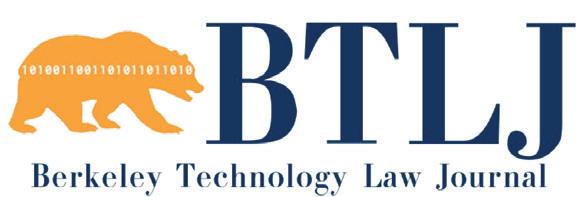


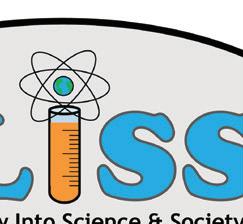



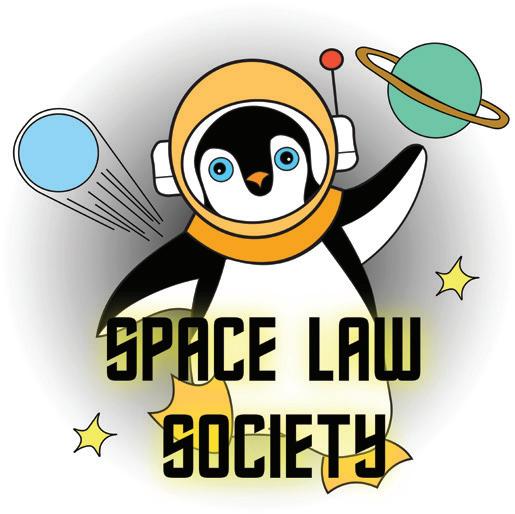

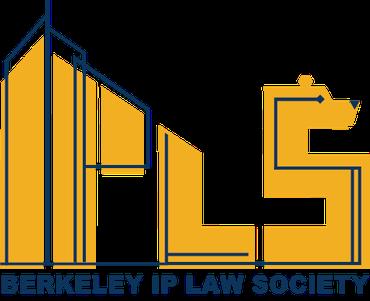
Annual Bulletin 2022-2023 | 25 2021-22 BCLT STUDENT GROUPS
Berkeley Legal Innovation and Technology Innovation, unlocked. The practice of law has long stagnated with the use of legacy systems and processes. B-LIT is inspired by the desire to push Berkeley’s leadership not just in the law of technology, but also the technology of law. B-LIT aspires to unlock Berkeley Law’s deep potential to nurture generations of technology-augmented and future-proof lawyers in the 21st century. B-LIT takes an interdisciplinary approach, with membership across schools on the UC Berkeley campus. We: foster thought leadership through events and research; create industry-relevant applications through collaboration with technologists, law firms and start-ups; and train students in legal informatics in the practice of law.
Berkeley Technology Law Journal
The Berkeley Technology Law Journal (BTLJ) is a student-run publication of
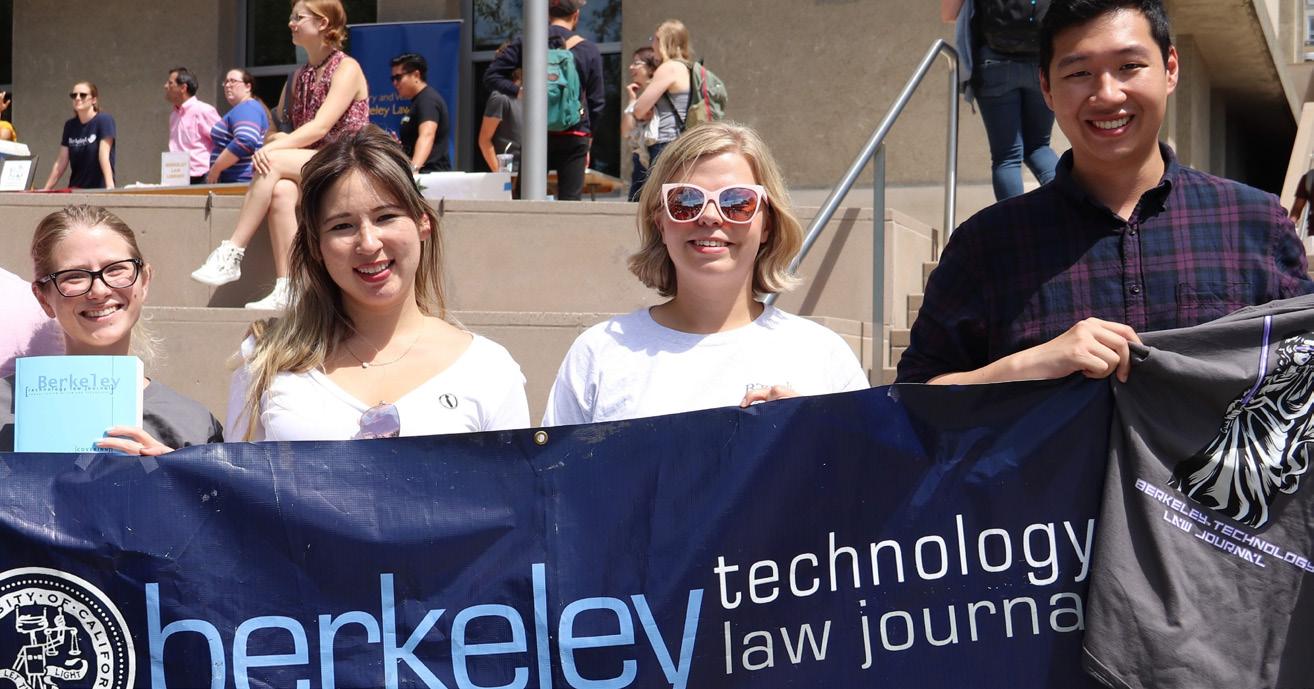
the University of California at Berkeley School of Law. BTLJ began as the High Technology Law Journal, publishing its first issue in Spring 1986. The Journal covers emerging issues of law in the areas of intellectual property and biotechnology; BTLJ strives to keep judges, policymakers, practitioners and the academic community abreast of the dynamic field of technology law. BTLJ has consistently been ranked as the top journal for intellectual property law, and has been repeatedly cited by courts, including every regional Circuit Court of Appeal, the Court of Appeals for the Federal Circuit, and the United States Supreme Court.
Bringing Law Into Science & Society
BLISS seeks to build greater understanding between scientists and lawyers through interdisciplinary seminars and networking events. Lawyers (and law students) learn how scientific proof is constructed and defined, so they can apply tools of scientific analysis to the practice of law. Scientists (and STEM students) learn how legal proof is constructed and described, to enhance their advocacy on legal and policy matters. BLISS provides an intellectually-engaging, interdisciplinary environment where law and STEM students can enrich their training and inform their policy goals.
Coalition of Minorities in Technology Law
The Coalition of Minorities in Technology Law (CMTL) is a student organization established within UC Berkeley School of Law with the purpose of providing community, mentorship, career resources, and advocacy on behalf of students who are interested in technology law and who come from backgrounds historically underrepresented in the technology, legal, and technology law fields.
Healthcare and Biotech Law Society at Berkeley Law
The Healthcare and Biotech Law Society at Berkeley Law is a group of law students who are interested in examining and analyzing the intersection between law, society, policy, and science. Our mission is to stimulate the intellectual and professional development of law students interested in health and/or biotech law. We provide a forum for students with a broad range of interests.
Intellectual Property Law Society
The Intellectual Property Society (IPLS) at Berkeley Law caters to the interests of all the budding Intellectual Property lawyers! IPLS is committed to cultivating research, discussions and advocacy in the field of Intellectual Property Law. We strive to provide all kinds of fruitful opportunities to the students interested in intellectual property law, thereby
26 | Annual Bulletin 2022-2023
strengthening their ties with Berkeley Law community. We work towards: 1) building network between intellectual property law attorneys, advocacy organizations and the Berkeley Law student body in order to promote the field of intellectual property law; 2) spreading awareness of intellectual property law as a career path for young scholars in the Berkeley community at large; and 3) providing training opportunities for students and also encouraging and maintaining intellectual property law curriculum and clinic opportunities at Berkeley Law.
Privacy Law at Berkeley
The Privacy Law at Berkeley (PrivLAB) serves as a forum for students, faculty and other members interested in the various facets of Information Privacy Law. The Association organizes meetings, events, talks, and seminars by experts working in the area of information privacy law. We aim to develop a strong network of people working towards the mission of overcoming challenges posed by the digital world and complexities arising from the same.
Public Interest Law & Technology
Public Interest Law & Technology (PIL&T) is a community of students interested in the intersection of law, technology, and social justice. We recognize the ways in which new technologies—and the laws governing them—can positively or negatively impact civil liberties, human rights, democratic governance, and social equity. PIL&T links
together the robust public interest and tech law communities at Berkeley Law by establishing a space for students to learn about important issues in this intersection, network with public interest technology lawyers, and support one another in crafting fulfilling careers.
Space Law Society Space. The final frontier. The Space Law Society provides a venue for the Berkeley Law community to encounter historical, contemporary, and prospective issues in the law and policy of outer space. Like many high technology legal fields, Space Law is a relatively new field which has developed rapidly. Our mission is one of nuanced exchange and infinite comradery. The ongoing mission of Space Law Society is to explore the emerging field, embracing the many perspectives that Berkeley Law Students have to offer and seeking out new practices and ideas—boldly going where no Berkeley Law student organization has gone before!
Sports and Entertainment Law Society
The mission of the Sports and Entertainment Law Society (SELS) is to educate the Berkeley Law community about legal opportunities and issues in the entertainment and sports industries. SELS also strives to facilitate opportunities for students to network not only with each other, but also with legal professionals in these industries. SELS regularly sponsors
many events during the academic year, including both guest lectures and social events. SELS thereby provides a resource for students to connect with alumni and other industry-leading professionals and seek employment opportunities in the sports and entertainment industries.
Women in Tech Law
Women in Tech Law (WiTL) is a studentled organization that strives to recruit, support, and empower women who are interested in pursuing technology law through providing outreach, mentorship, and educational resources. WiTL aspires to use outreach as a medium to not only encourage women to enter the field, but to also expand the presence of women in the field by providing awareness to the opportunities and potential that tech law can hold for women from both STEM and non-STEM backgrounds. WiTL seeks to use mentorship and other platforms to increase members’ accessibility into tech law, in an attempt to break the glass ceiling of the technology industry.
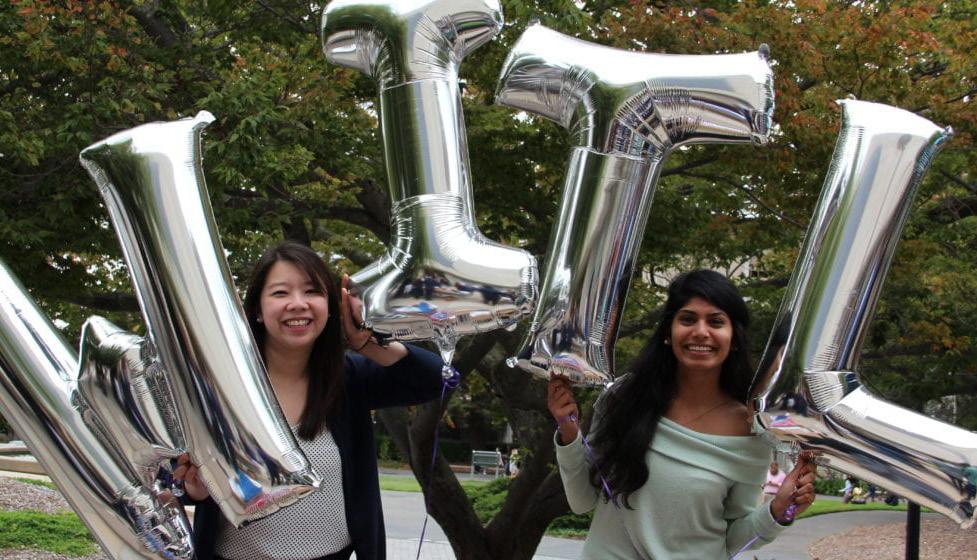
Annual Bulletin 2022-2023 | 27
BCLT Technol0gy Pillars
With 18 tech-focused faculty and 40+ industry-leading lecturers, Berkeley Law offers unrivaled thought leadership and educational opportunities in IP and technology law. Our legal research and teaching are organized around six pillars that are core to today’s technology discussions.
BCLT builds upon this work with its own pillar-spanning research projects, including the Asia IP & Technology Law Project and the Life Sciences Project.
28 | Annual Bulletin 2022-2023

IP AND ANTITRUST
It is no accident that the nation’s #1 ranked IP program sits in the world’s most storied innovation hub, the San Francisco Bay Area. For over 25 years,
BCLT and its faculty co-directors have brought leading academics and the nation’s top innovators together to explore IP law, its impacts on innovation, its impacts on society, and its future direction.
foundational IP courses from the nation’s leading faculty. In many cases, students will get to take courses directly from their casebook’s author.
This collaboration has not only resulted in leading scholarship— it also has created an unmatched educational environment for students.
The current course catalog contains dozens of courses focused on core IP topics. Students can take the critical
Students can also select from many highly-specialized IP courses that are taught by practitioner-lecturers drawn from the Bay Area’s top law firms and companies. Students leave Berkeley Law ready to practice IP law and ready to adapt to inevitable changes in IP law.
30 | Annual Bulletin 2022-2023
“Through teaching, scholarship, and industry-professional gatherings of all kinds, BCLT has played a leading role in accelerating our understanding of contemporary challenges to the patent system, and in advocating research-based policy proposals on various issues (patent troll litigation; the importance of patents to venture capitalists and other investors; patents and overseas trade/ supply chains; etc.). A distinctive “west coast” approach to patent law has emerged over the past thirty or so years, and BCLT has played a leading role in convening companies, law firms and policymakers of all kinds to shape and foster this approach. The very wide range of our patent-related courses, programs, and scholarship in this field bear witness to the interest in and value of this distinctive approach to the ever-changing and still-important field of patent law.”

- Rob Merges, Wilson Sonsini Goodrich & Rosati Professor of Law and Associate Dean of Advanced Degree Programs and Global Engagement
CURRICULUM
Advanced Samuelson Clinic & Seminar
Art and Cultural Property Law
Antitrust
Antitrust and Innovation
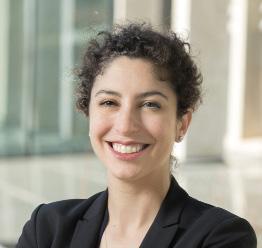
Antitrust and Technology Platforms
Art and Cultural Property Law
Business of Intellectual Property
Chinese IP Law
Copyright Law
Copyright, Competition, and Technology

Intellectual Property Law International Antitrust Law
IP in the Music Industry
IP Practicum Clinic
Law and Technology Writing Workshop
Mergers, Market Power and Monopoly in U.S. Antitrust Law Patent Law
Patent Litigation I
Patent Litigation II: PTAB and ITC
Patent Prosecution
Patent Remedies
Preparing to Practice Patent Law
Samuelson Clinic & Seminar
Technology for Lawyers
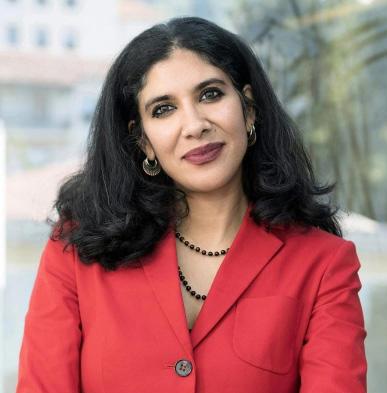
Trade Secret Law
Trademark Law
Trademark Practice
Transnational Intellectual Property Law
FACULTY CO-DIRECTORS
Tejas N. Narechania
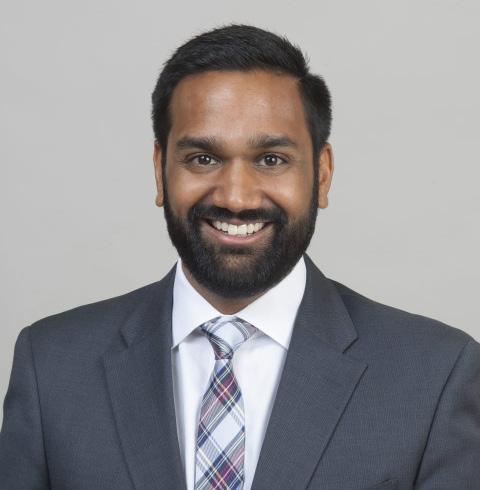
Robert P. Merges


Molly Shaffer Van Houweling

32 | Annual Bulletin 2022-2023
Wilson Sonsini Goodrich & Rosati Professor of Law and Associate Dean of Advanced Degee Programs and Global Engagement
Harold C. Hohbach Distinguished Professor of Patent Law and IP and Associate Dean for J.D. Curriculum and Teaching
Pamela Samuelson Richard M. Sherman Distinguished Professor of Law and Information
Peter S. Menell Koret Professor of Law
Sonia Katyal Associate Dean for Faculty Development and Research
Robert and Nanci Corson Assistant Professor of Law
Rebecca Wexler Assistant Professor of Law
EVENTS
26th Annual BCLT-BTLJ Symposium: The Emergent Right to Repair
April 22, 2022
With today’s software-enabled products, including our cars and toasters, we can no longer take for granted a right to repair them ourselves or to take them to the local repair shop of our choosing. In response to legal and technological restrictions, a growing movement advocating a right to repair has emerged, despite pushback from some quarters. Manufacturers and device makers remain skeptical of an unfettered right to repair, citing concerns over intellectual property rights, reliability, security, and lost revenue. This symposium will consider the complex, overlapping set of policy questions at the center of the repair debate. How do restrictions on repair, or their elimination, affect competition? How might policymakers resolve potential tensions between the right to repair and the intellectual property rights of device makers? Would the consumer benefits of openrepair markets outweigh their risks? And what legislative solutions or other policy interventions are bestsuited to address these questions?
22nd Annual Berkeley-Stanford Advanced Patent Law Institute
December 9-10, 2021
APLI presents a roster of judges, academics, litigators, patent prosecutors, and senior IP counsel from major corporations offering a results-oriented, in-depth look at the latest developments in patent law and practice.
Annual Intellectual Property Scholars Conference Summer 2021
The IPSC brings together intellectual property scholars to present their works-in-progress in order to benefit from the critique of colleagues. The conference is co-sponsored by the Berkeley Center
for Law and Technology, UC Berkeley School of Law; the Intellectual Property and Information Law Program, Benjamin N. Cardozo School of Law at Yeshiva University; the Center for Intellectual Property Law and Information Technology, DePaul University College of Law; and the Stanford Program in Law, Science & Technology, Stanford Law School.
Google v. Oracle: An Initial Appraisal
April 20, 2021
On April 5, the Supreme Court handed down its much-anticipated decision in one of the most consequential copyright cases of our time, Google v. Oracle. Our assessment of this momentous decision was led by Professors Peter Menell and Pamela Samuelson. In addition to filing amicus briefs in the case, they have written extensively about it and the broader issues of software copyright.
BCLT/BTLJ Design Patents Symposium: Navigating and Rectifying the Design Patent Muddle
February 19, 2021
This symposium explored the history of design patent protection and the evolution of the key ornamentality/non-functionality doctrine. The lead paper, Design Patent Law’s Identity Crisis, authored by Professor Peter Menell and Ella Corren, framed the Symposium. Panels comprised of academic and practitioner commentators discussed the past, present, and future of design protection.
Annual Bulletin 2022-2023 | 33
PRIVACY, CYBERSECURITY, AND CONTENT REGULATION
Companies and innovators in the San Francisco Bay Area continue to surface new legal questions about privacy and cybersecurity. And California privacy laws have been a model for the world. With that kind of local backdrop, Berkeley Law and the BCLT faculty codirectors have established themselves as the go-to experts on privacy and cybersecurity topics.
research has played a major role in the development of privacy and cybersecurity regulations worldwide.
Berkeley Law students have the opportunity to immerse themselves in over a dozen classes focused on privacy and cybersecurity issues.
Our faculty includes internationallyrecognized data experts with concentrations spanning comparative privacy law, consumer privacy, computer crime, and the law of government surveillance. Our
34 | Annual Bulletin 2022-2023
“With the enactment of the California Consumer Privacy Act, California is now an epicenter for privacy developments. And BCLT has an unparalleled group of experts in every aspect of privacy and cybersecurity law, including Ken Bamberger, Catherine Crump, Chris Hoofnagle, Orin Kerr, Deirdre Mulligan, Andrea Roth, Jennifer Urban, Rebecca Wexler, and myself. [In 2021], BCLT’s own Professor Urban [was] named as the chair of the new California Privacy Protection Agency. Along with four other experts, she will be members of a board of a new administrative agency responsible for protecting the privacy rights of consumers. Berkeley Law is an incredibly exciting place for all those interested in tech and law.”

- Paul Schwartz, Jefferson E. Peyser Professor of Law and BCLT Faculty Director
CURRICULUM
Advanced IT Contracts: Drafting and Negotiating
Advanced Samuelson Clinic & Seminar
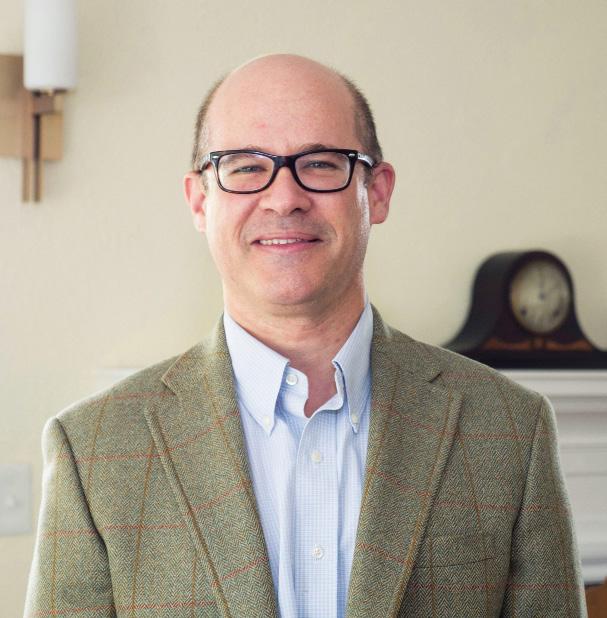
California Privacy Law


Computer Crime Law Cybersecurity Law and Policy
Future of Cybersecurity Workshop


Information Privacy Law Law and Technology Writing Workshop
Privacy Counseling and Compliance
Samuelson Clinic & Seminar
Secrecy: The Use and Abuse of Information Control in the Courts
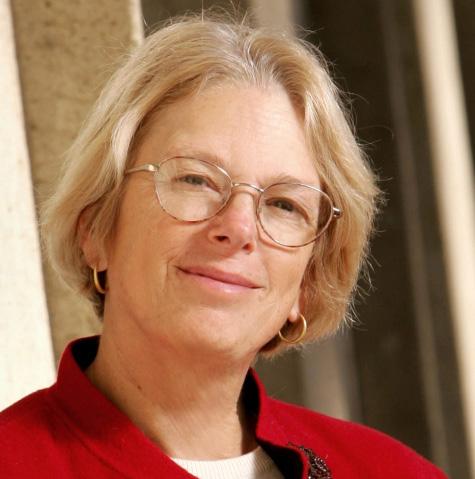
Technology for Lawyers
Topics in Privacy and Security Law

FACULTY CO-DIRECTORS

Tejas N. Narechania

36 | Annual Bulletin 2022-2023
Kenneth A. Bamberger
Rosalinde and Arthur Gilbert Foundation Professor of Law
Deirdre K. Mulligan Professor in the School of Information and the School of Law
Pamela Samuelson Richard M. Sherman Distinguished Professor of Law and Information
Robert and Nanci Corson Assistant Professor of Law
Paul Schwartz Jefferson E. Peyser Professor of Law
Catherine Crump Director of the Samuelson Law, Technology & Public Policy Clinic and Clinical Professor of Law
Erik Stallman
Associate Director of the Samuelson Law, Technology & Public Policy Clinic, Assistant Clinical Professor
Chris Jay Hoofnagle
Teaching professor in the School of Law, with a dual appointment in the School of Information
Orin S. Kerr William G. Simon Professor of Law
Jennifer M. Urban
EVENTS
15th Annual BCLT Privacy Lecture: Playing the Long Game
Prof. Joseph Turow, Annenberg School for Communications, University of Pennsylvania
October 14, 2022
Encouraging public acceptance of deeply rooted commercial surveillance within U.S. society has become a crossgenerational project. Professor Joseph Turow’s industry research and survey work over the past three decades has convinced him that academics, activists, and government policymakers have been ignoring a critical development: The convergence of key practices in the family, education, the law and other institutions with widespread strategies among marketers suggest that deeply personalized data use will be an even more taken-for granted part of future generations than it is today. Prescribing
realistic solutions to this discriminatory dynamic that can fracture society is a key challenge of our age.
10th Annual BCLT Privacy Law Forum
February 24, 2022; Online
Bridging academia and practice, this fullday conference brings together in-house counsel from leading tech companies, practicing lawyers, regulators, privacy advocates, and academics. Faculty from Berkeley Law share their latest research and analysis, and leading privacy experts from law firms, companies, and government agencies will offer fresh insight and practical advice on meeting urgent privacy challenges.
14th Annual BCLT Privacy Lecture: Policing Families
Prof. Dorothy E. Roberts
October 28, 2021; Online
In our 2021 BCLT Privacy Lecture, Prof. Roberts explores themes from her forthcoming book on family policing. As predictive technologies are integrated into the child protection services and foster care systems, her analysis of the nature and impact of government surveillance on families will be especially timely.
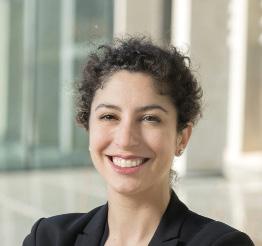

Annual Bulletin 2022-2023 | 37
Clinical Professor of Law and the Director of Policy Initiatives for the Samuelson Law, Technology & Public Policy Clinic
Rebecca Wexler
Assistant Professor of Law
TECHNOLOGY, DISRUPTION, AND SOCIAL
IMPACT
Rapid innovation—whether it be in high-tech or biotech—creates legal issues unimagined just a few years ago.
BCLT faculty co-directors are leading the examination of these emerging legal issues and have established themselves as the nation’s leading
experts on the impact of technology on both society and individuals. They are researching a diverse range of topics, including government use of surveillance, regulation of internet
platforms, forensic science in criminal prosecutions, technology regulations
impacting the First Amendment, and the intersection of law and medicine.
Students have access to 45 courses that explore technology’s impact on us all.
Students also have the opportunity to gain hands-on experience with these societal-impact issues by participating in innovative clinics like the Samuelson Law, Technology, & Public Policy Clinic.
38 | Annual Bulletin 2022-2023
“As technology has transformed more areas of life, technology law and policy has spun out in many directions beyond the copyright and speech issues that first preoccupied the field some two decades ago. Research by faculty and students now involves issues as disparate as the use of geolocation tracking bracelets on kids in the juvenile justice system to the provision of broadband during the pandemic. Part of the appeal of the field is the dazzling array of work that falls within it, and its constant evolution.”

- Catherine Crump
Clinical Professor, BCLT Faculty Director, and Director of the Samuelson Law, Technology & Public Policy Clinic
CURRICULUM
A Just Transition to Clean Energy
Advanced Samuelson Clinic & Seminar Antitrust and Innovation
Bioethics: From Nuremberg to Modern Times
Business in Society
Climate Change & Corporate
Governance Reform
Climate Change and the Law
Computer Crime Law Copyright Law
Criminal Procedure: Investigations
Current Topics in National Security Law
Cybersecurity Law and Policy Disruptive Technologies and Regulation
Energy Law and Policy
Environmental Health Law Through Film Environmental Justice and Advocacy in California
Environmental Justice and Health Equity
Environmental Justice: Race, Class and the Environment
Environmental Justice in Practice Environmental Law and Policy Environmental Transactional Law
Fire Science, Law, and Policy
Gaming Law: Gambling, Fantasy Sports, Online Wagers
Hate Speech, Disinformation, and Online Harassment:
Regulation of and by Internet Platforms
Information Privacy Law
Intellectual Property Law International Environmental Law Law and Technology Writing Workshop
National Security Law: A Practitioner’s Perspective
Patent Law Pathways to Carbon Neutrality
Regulated Digital Industries: Telecommunications Law & Policy for a Modern Era Renewable Energy Law and Policy
Samuelson Clinic & Seminar
Science and Regulatory Policy Secrecy: The Use and Abuse of Information Control in the Courts
Social Enterprise Law Social Justice Issues in Entertainment and Media Law Space Law
Sustainable Capitalism & ESG Technological Disruption and Social Justice for LL.M.s Technology for Lawyers Technology Law and Public Policy Seminar Trade Secret Law
Trademark Law
40 | Annual Bulletin 2022-2023
EVENTS
The 3rd Annual BTLJ-BCLT Race & Technology Law Symposium: Race Ex Machina: Confronting the Racialized Role of Technology in the Criminal Justice System Friday, November 18, 2022
As algorithmic decision-making and invasive surveillance technologies have become increasingly entangled with the U.S. criminal legal system, it has also become increasingly clear that these technologies and their applications often replicate and amplify existing racial disparities. Predictive policing, pretrial risk assessment, and algorithmic sentencing tools replicate racial bias, yet IP protections make examining and challenging their use difficult. Geofence warrants, facial recognition technology, and video surveillance are disproportionately used to target black and brown communities despite known reliability issues. Invasive applications and tools like ShotSpotter and Clearview AI are bought and deployed by law enforcement agencies with little oversight or attention paid to the harms they cause.
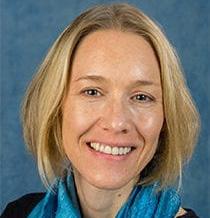
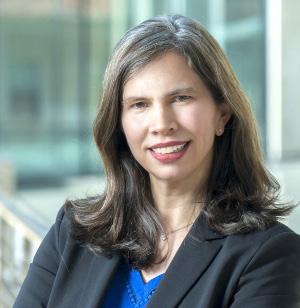



BTLJ-CMTL-BCLT Symposium | Race & Technology Law: Innovating Health Equity November 10, 2021

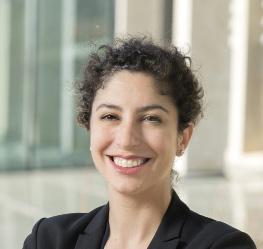
Among topics discussed, “Race & Access to Health Care Innovation” and “The Impact of Technological Trends on Racial Minorities in America.”
Cyber-hate: Defining and Combating Antisemitism and Hate Online
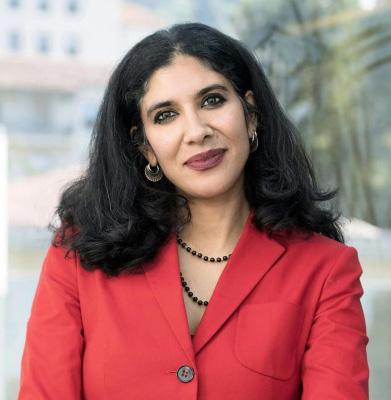
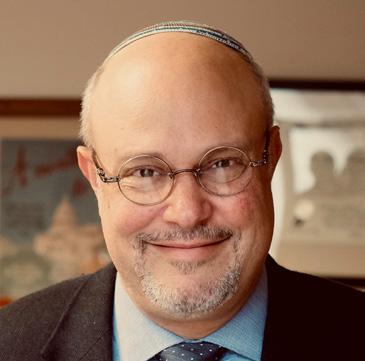
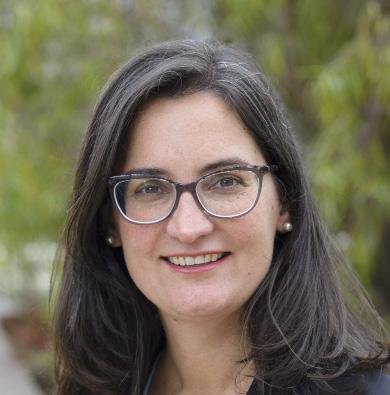
February 4 and March 4, 2021
This symposium explored the phenomenon of cyber-hate. What are the key issues and manifestations? What are the appropriate responses to online hate? What are the frameworks available— legal, social, technological — and possible constraints to responding? How do we evaluate the success of various solutions? Co-sponsored by the Berkeley Institute’s Program on Jewish Law, Thought, and Identity and the Berkeley Center for Law & Technology.
Annual Bulletin 2022-2023 | 41 FACULTY CO-DIRECTORS
Catherine Fisk
Barbara Nachtrieb Armstrong Professor of Law
Catherine Crump Director of the Samuelson Law, Technology & Public Policy Clinic and Clinical Professor of Law
Kenneth A. Bamberger
Rosalinde and Arthur Gilbert Foundation Professor of Law at Berkeley Law
Rebecca Wexler Assistant Professor of Law
Sonia Katyal
Associate Dean for Faculty Development and Research
Deirdre K. Mulligan Professor in the School of Information and the School of Law
Peter S. Menell Koret Professor of Law
Andrea Roth Professor of Law
Osagie K. Obasogie
Haas Distinguished Chair and Professor of Law at Berkeley Law with a joint appointment in the School of Public Health.
Jennifer M. Urban Clinical Professor of Law and the Director of Policy Initiatives for the Samuelson Law, Technology & Public Policy Clinic
DATA SCIENCE AND INFORMATION TECHNOLOGY
Innovation in the IT field continues to create new and important legal issues. BCLT’s faculty co-directors have established themselves as leading thinkers in today’s most pressing IT and data science legal issues, including blockchain, FinTech, AI, social media, video games, and computer crimes.
With the opportunity to select from 19 ITfocused classes, students can explore how IT and data science impacts regulatory policy, criminal investigations, and business transactions.
42 | Annual Bulletin 2022-2023

“The relationships between law and technology, code and governance, and technologists and lawyers become more varied and complex every year. BCLT faculty research and convenings help lawyers, technologists, and policymakers understand and navigate this expanding territory.”
- Deirdre Mulligan Professor at Berkeley Law and the UC School of Information, and BCLT Faculty Director
CURRICULUM
Advanced IT Contracts: Drafting and Negotiating
Advanced Samuelson Clinic & Seminar

Blockchain Innovation for the Unbanked Billions
Computer Crime Law Computer Law
Computer Programming for Lawyers

Copyright, Competition, and Technology

Copyright Law
Current Topics in National Security Law
Cybersecurity Law and Policy FinTech Innovation and Financial Inclusion

FinTech: Tools for Analyzing New Financial Products
Information Privacy Law Law and Technology Writing Workshop
National Security Law: A Practitioner’s Perspective
Regulated Digital Industries: Telecommunications Law & Policy for a Modern Era
Samuelson Clinic & Seminar
Social Media Law Technology for Lawyers Video Game Law
FACULTY CO-DIRECTORS

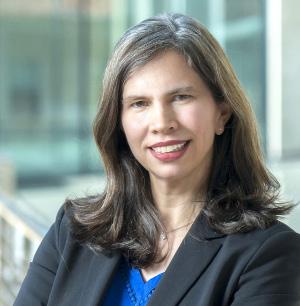
44 | Annual Bulletin 2022-2023
Orin S. Kerr William G. Simon Professor of Law
Pamela Samuelson Richard M. Sherman Distinguished Professor of Law and Information
Andrea Roth Professor of Law
Sonia Katyal Associate Dean for Faculty Development and Research
Chris Jay Hoofnagle Teaching professor in the School of Law, with a dual appointment in the School of Information
Deirdre K. Mulligan Professor in the School of Information and the School of Law
Tejas N. Narechania

EVENTS
BCLT-BTLJ Spring Symposium: Transatlantic Dialogue
April 6-7, 2023
Agenda in progress
Annual Legal Frontiers in Digital Media

Thursday & Friday, May 19-20, 2022
Topics discussed included Transparency and the First Amendment, the EU’s Rewrite of the Platform Content-Regulation Rulebook, Who Moderates the Moderators?, the Incoming Tide of State Privacy Compliance, a Briefing on the Emerging EU Law of Data and Social Media and the War in Ukraine.
25th Annual BCLT/BTLJ Symposium—Lex Informatica: The Formulation of Information Policy Rules Through Technology April 15-16, 2021

Scraping Takeaways from Van Buren v. United States
June 15, 2021
As a follow-up to our May 2021 virtual digital conference, we brought you hot takes on Van Buren v. United States. We explored the implications of the ruling for websites’ efforts to prohibit scraping, data journalism, and other issues. Featuring Orin Kerr, William G. Simon Professor of Law, UC Berkeley in conversation with Marc Zwillinger, Founder & Managing Member, ZwillGen.
Joel Reidenberg’s prescient article, Lex Informatica: The Formulation of Information Policy Rules Through Technology, published in the Texas Law Review in 1998, urged policymakers to understand, consciously recognize, and encourage the evolution of extra-legal influences to achieve optimal public policy outcomes. This symposium honored the legacy of Reidenberg’s deep insights about Lex Informatica as policy levers and explored respects in which Lex Informatica is working in the public interest and ways in which technology regulations could be improved.
Symposium: 25th Anniversary of the Telecommunications Act of 1996—Looking Ahead to the Next Telecommunications Act March 12, 2021
To mark the 25th anniversary of the 1996 Telecommunications Act, this symposium explored possible facets of the next major telecommunications reform effort (whenever it may be), including technological convergence and regulatory power; race and diversity in communications law; institutional design and the Federal Communications Commission; and federalism and state power.
Annual Bulletin 2022-2023 | 45
Robert and Nanci Corson Assistant Professor of Law
Erik Stallman
Associate Director of the Samuelson Law, Technology & Public Policy Clinic, Assistant Clinical Professor
Molly Shaffer Van Houweling
Harold C. Hohbach Distinguished Professor of Patent Law and IP and Associate Dean for J.D. Curriculum and Teaching
ENTERTAINMENT AND NEW MEDIA
Technology has revolutionized the creation, distribution, and consumption of digital content. The laws around music, TV and film, sports, social media, and video games are evolving at an incredible rate. And
Berkeley Law has claimed a leadership role in both research and education within these areas. Our faculty are turning out leading research on mediarelated IP protection, Internet Service
Provider liability, network neutrality, and social media regulation.
Our students can choose from two dozen innovative courses focused on social media, music law, video game law, Hollywood contracts, and sports law contracts. And with access to our practitioner-lecturers, students are exposed to the latest development within this rapidly-changing area of law.
46 | Annual Bulletin 2022-2023
“At a time of great and tumultuous change in the media and entertainment world, lawyers are at the heart of rethinking how to restructure the entertainment business to support the creators of content so the audience gets the stories they want and the business is sustainable. Berkeley Law creates innovative thinkers, so its graduates are and can be leaders in the conversations which create these new structures.”
 -Linda Lichter
-Linda Lichter
Founding Member and Partner, Lichter Grossman Nichols Adler Feldman & Clark
Advanced Samuelson Clinic & Seminar
Art and Cultural Property Law
Copyright, Competition, and Technology
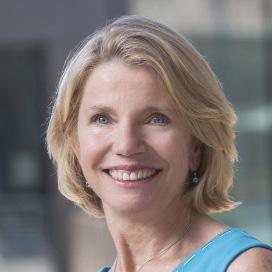

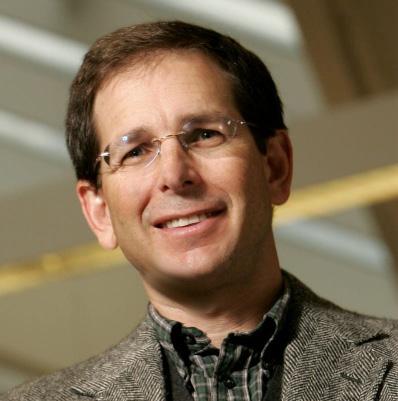
Copyright Law
Drafting and Negotiating Sports Law Contracts
Entertainment Law in the TV Industry
First Amendment
Gaming Law: Gambling, Fantasy Sports, Online Wagers
Intellectual Property Law
IP in the Music Industry Law and Technology Writing Workshop
Media Law and the First Amendment
Music Law Practice
Negotiating Hollywood Contracts
Regulated Digital Industries: Telecommunications Law & Policy for a Modern Era
Representing Professional Athletes
Samuelson Clinic & Seminar
Social Justice Issues in Entertainment and Media Law
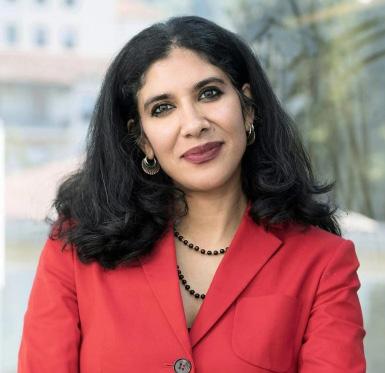
Social Media Law Sports Law
Trade Secret Law Trademark Law Trademark Practice Video Game Law
FACULTY CO-DIRECTORS
48 | Annual Bulletin 2022-2023
CURRICULUM
Peter S. Menell Koret Professor of Law
Pamela Samuelson Richard M. Sherman Distinguished Professor of Law and Information
Catherine Fisk Barbara Nachtrieb Armstrong Professor of Law
Sonia Katyal Associate Dean for Faculty Development and Research
EVENTS
Berkeley Law’s Annual Sports & Entertainment Conference has become one of the Bay Area’s most recognized student-run sports and entertainment events of the year. The conference’s are hosted by the Berkeley Journal of Entertainment and Sports Law and Berkeley Center for Law and Technology. This marquee event brings together leading executives, management professionals, attorneys, athletes, talent, and students to Berkeley Law for the opportunity to discuss the leading topics in sports, entertainment, law, business, and culture. Recent and upcoming conference included:
7th Annual Berkeley Law Sports & Entertainment Conference
April 8, 2022 6th Annual Berkeley Law Sports & Entertainment Conference November 5-6, 2020
8th Annual Berkeley Law Sports & Entertainment Conference April 2023 (tentative)
in progress
Annual Bulletin 2022-2023 | 49
Planning
LIFE SCIENCES AND HEALTH TECHNOLOGY
The Bay Area life sciences ecosystem has proven to be a world leader in life sciences innovation. Berkeley Law and BCLT are uniquely positioned to provide the legal scholarship and training needed both to support the life sciences industry and to address its impact on society.
In 2021, with generous funding from Genentech, Gilead, Vern Norviel, Wilson Sonsini, and Weil Gotshal, BCLT expanded its existing focus on life sciences by creating the new Life
Sciences Project. The Life Sciences Project has already supported development of new and innovative classes and experiences for law students interested in the life sciences, including the Life Sciences & Innovation Workshop, a two-semester research workshop focused on studying the drivers of innovation in the life sciences. The Life Sciences Project will continue to support the expansion of the life sciences curriculum at Berkeley Law.
50 | Annual Bulletin 2022-2023

“Berkeley Law is one of the top public law schools in the United States, as well as being situated in one of the top life science research universities in the world, and all the while in a geography that draws more life science funding than anywhere else in the world. It is the center of it all.”
-Vern Norviel Co-founder Life Sciences Project
CURRICULUM
Advanced Samuelson Clinic & Seminar
Antitrust Law
Antitrust and Innovation
Bioethics: From Nuremberg to Modern Times
Biotechnology Law
Environmental Health Law Through Film
Environmental Justice and Health Equity
Food Justice
Information Privacy Law
Intellectual Property Law IP Practicum Clinic
Law and Technology Writing Workshop Law, Public Health, and Police Use of Force
Life Sciences & Innovation Workshop I Life Sciences & Innovation Workshop II
Marijuana Law and Policy Mental Health and the Law
Patent Law Patent Litigation I
Patent Litigation II: PTAB and ITC Patent Prosecution
Preparing to Practice Patent Law
Public Health Law
Samuelson Clinic & Seminar
Science and Regulatory Policy Technology for Lawyers Topics in Pharmaceutical Policy: The Case of Biotherapeutics
Trade Secret Law Wine Law
52 | Annual Bulletin 2022-2023
EVENTS
Advanced Life Sciences Institute: IP and Licensing Spring 2023
Planning in progress
Biometrics Regulation: Global State-of-play Spring 2023
Planning in progress
As part of BCLT’s new Biometrics Project, this symposium will bring together interdisciplinary panels to discuss global biometrics regulation. The focus will be on three applications of biometrics technology: commercial digital wellness, digital ID and service delivery, facial recognition and AI. The aim is to critically explore regulatory rationales and their impact on both biometrics innovation and protection against harm.
2022 BCLT Advanced Life Sciences Institute Friday, April 22, 2022
BCLT’s new Life Sciences Project launched the Advanced Life Sciences Institute with a conference on IP and licensing. The program consisted of in-depth discussions and examination of key issues related to intellectual property and transactions in the life sciences sector. BCLT Symposium on Race and Health: The Intersection of Race, Healthcare, and Technology Law November 10, 2021
Among topics discussed, “Race & Access to Health Care Innovation” and “The Impact of Technological Trends on Racial Minorities in America.”
Advanced Life Sciences Institute: Digital Health
Winter/Spring 2023 Planning in progress
Annual Bulletin 2022-2023 | 53
Sponsorship

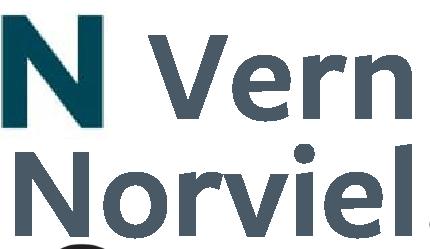
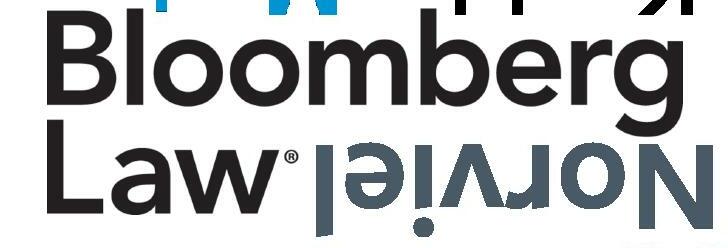


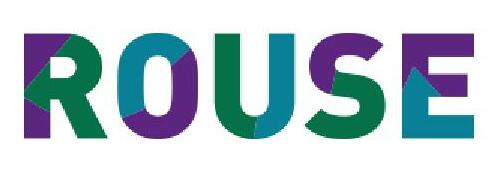
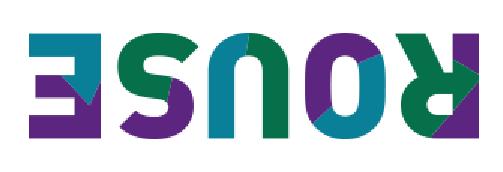

54 | Annual Bulletin 2022-2023
The Berkeley Center for Law and Technology is an integral part of Berkeley Law and our being consistently deemed to be the top law school in the country in the areas of intellectual property and technology. BCLT is committed to having open and balanced discussions of important issues impacting the tech and IP community.
BCLT’s success – including our ability to make these discussions available to everyone regardless of individual ability to pay – is because our sponsors have been so generous with their support over the past 25 years.

Annual Bulletin 2022-2023 | 55
The need for BCLT never has been greater. Thank you for all that you do.
Warmly, Erwin Chemerinsky Dean of Berkeley Law
Berkeley Center for Law & Technology University of California, Berkeley School of Law 421 Law Building Berkeley, CA 94720-7200 Tel 510.643.4800 bclt@law.berkeley.edu law.berkeley.edu/research/bclt
 Wayne Stacy Executive Director, BCLT
Wayne Stacy Executive Director, BCLT
























 Rosalinde and Arthur Gilbert Foundation Professor of Law
Rosalinde and Arthur Gilbert Foundation Professor of Law





 Wilson Sonsini Goodrich & Rosati Professor of Law and Associate Dean of Advanced Degree Programs and Global Engagement
Wilson Sonsini Goodrich & Rosati Professor of Law and Associate Dean of Advanced Degree Programs and Global Engagement



















































































 -Linda Lichter
-Linda Lichter





























